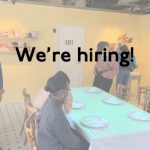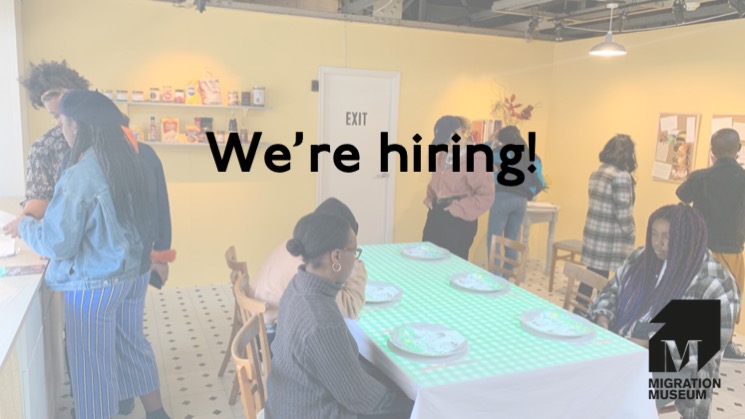22 January, 2020
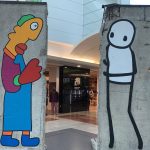
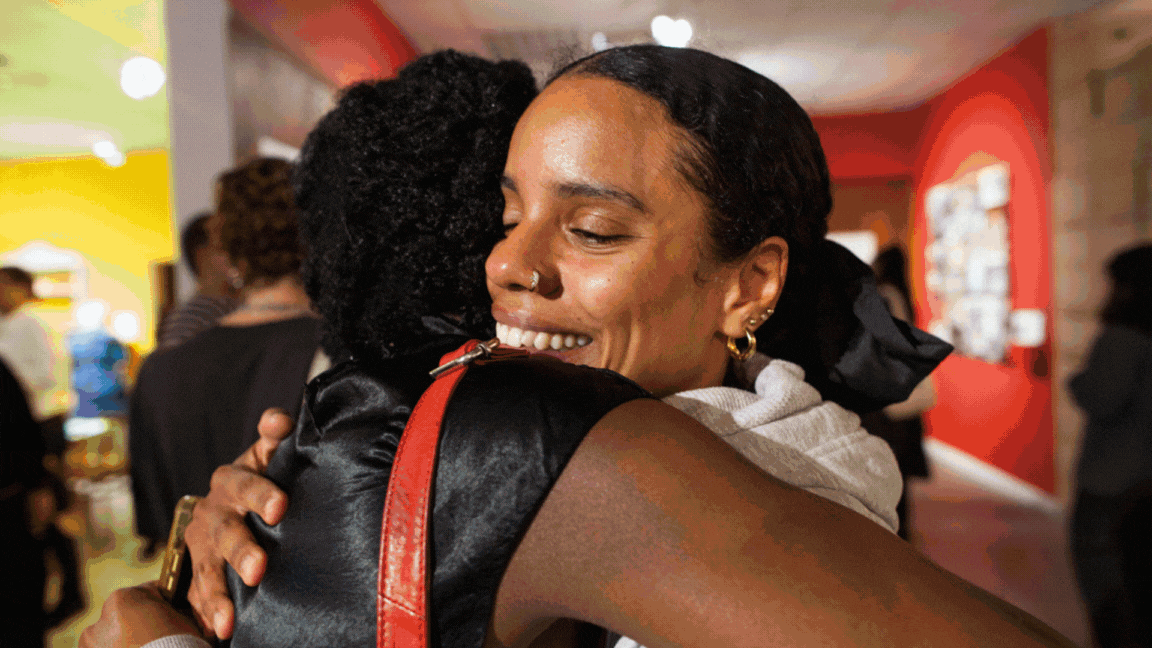
The Migration Museum in Lewisham has now closed. Thank you to everyone who’s visited us over the past five years.
This isn’t goodbye – we have exciting plans coming soon. Sign up to our mailing list to be the first to hear about them.
Come with us
Come with us on the next stage of our journey as we work towards a new temporary venue and the opening of our permanent home in the City of London:
⭐ Connect with us: Sign up to our mailing list and follow us on Instagram, Facebook, LinkedIn, BlueSky and TikTok to stay connected, get behind-the-scenes insights into our work and plans, deeper dives into the artists and makers we work with, and be the first to hear what’s next.
⭐ Spread the word: Tell your friends, families and colleagues about the Museum and our work.
⭐ ‘Visit’ us online: While our doors are closed in Lewisham and we await news of our next venue, you can still engage with our work online via our Heart of the Nation: Migration and the Making of the NHS online exhibition and our Departures: 400 Years of Emigration from Britain podcast.
⭐ Donate: Making a one-off gift, or a regular commitment through a monthly contribution, will enable us to continue our work and build the momentum of the museum.
School, college and university visits
The Migration Museum is currently relocating so we are unable to host in person school trips until next academic year. During the Summer Term we are offering outreach, online sessions and walking tours. For more details please email tia@migrationmuseum.org.
For more information, please email us at info@migrationmuseum.org or call us on 020 3488 4508 (please note that calls will only be answered during working hours).
11 December, 2019
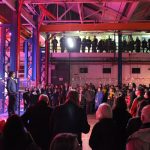
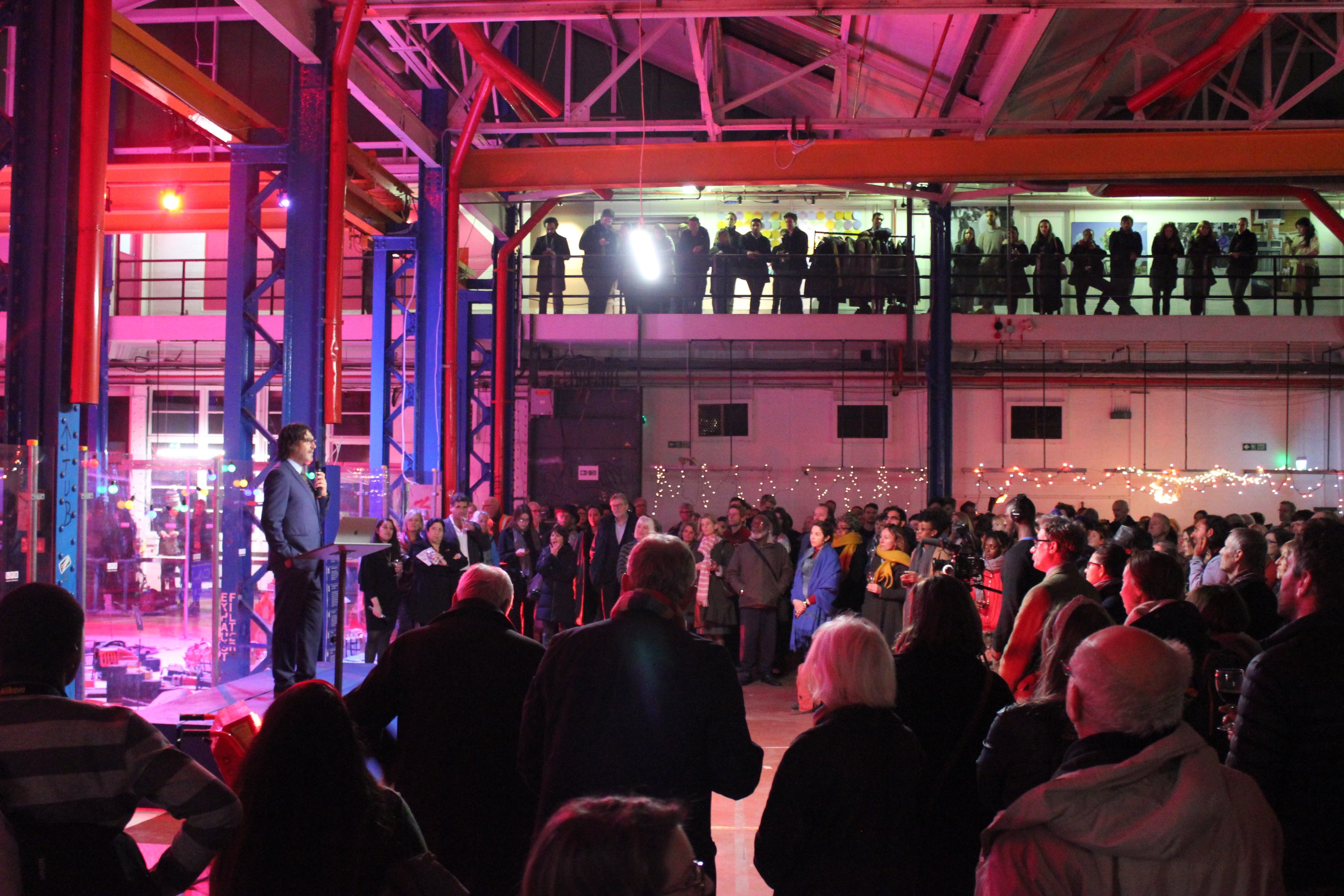
Historian, TV presenter and Migration Museum trustee David Olusoga speaking at the launch of our Room to Breathe exhibition, October 2018 © Poppy Williams/Migration Museum
After a fantastic two and a half years, our Migration Museum at The Workshop is now closed to the public.
As we gear up for a move to an exciting new venue in 2020 – more details coming soon – we wanted to look back at some of the highlights of our time on Lambeth High Street.
Being based at The Workshop since April 2017 has been transformative for us as an organisation, providing us with a venue of our own for the very first time. We have staged a dynamic series of exhibitions, events, and education and group workshops, and significantly grown our audience, profile and partnerships, testing ideas, gathering feedback and providing a showcase for the permanent Migration Museum for Britain that we are working to create.
During our time at The Workshop, we:
Welcomed over 32,000 visitors from across London, the UK and beyond.
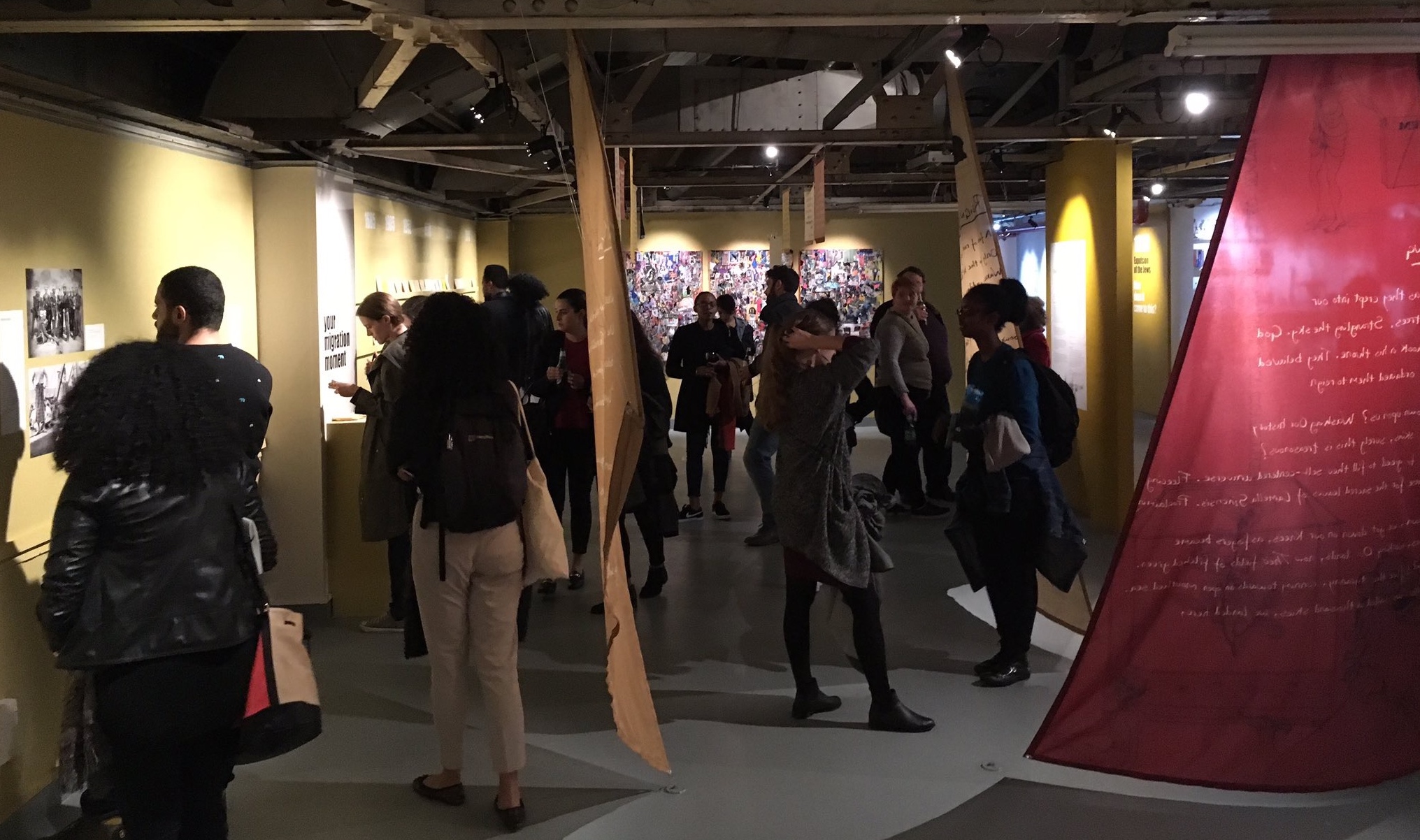
Visitors to a late opening at the Migration Museum at The Workshop © Migration Museum
Staged three major exhibitions:
Call Me By My Name: Stories from Calais and Beyond, a multimedia exhibition exploring the complexity and human stories behind the current migration crisis, with a particular focus on the now demolished Calais camp.
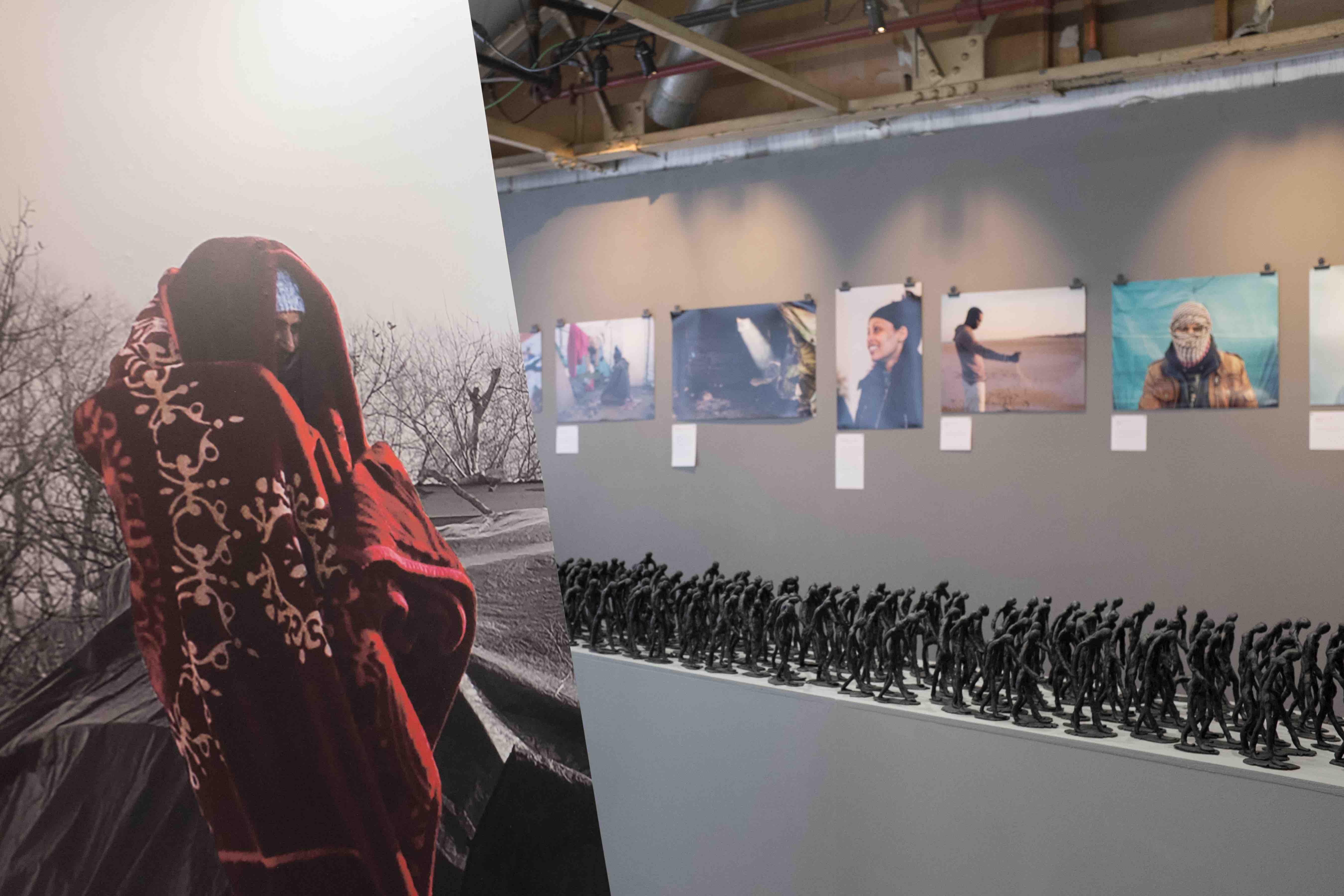
Call Me By My Name: Stories from Calais and Beyond at the Migration Museum at The Workshop, April 2017 © Kajal Nisha Patel
No Turning Back: Seven Migration Moments that Changed Britain, an acclaimed exhibition exploring seven migration moments throughout history that changed Britain through art, photography, graphics, quotes and stories.
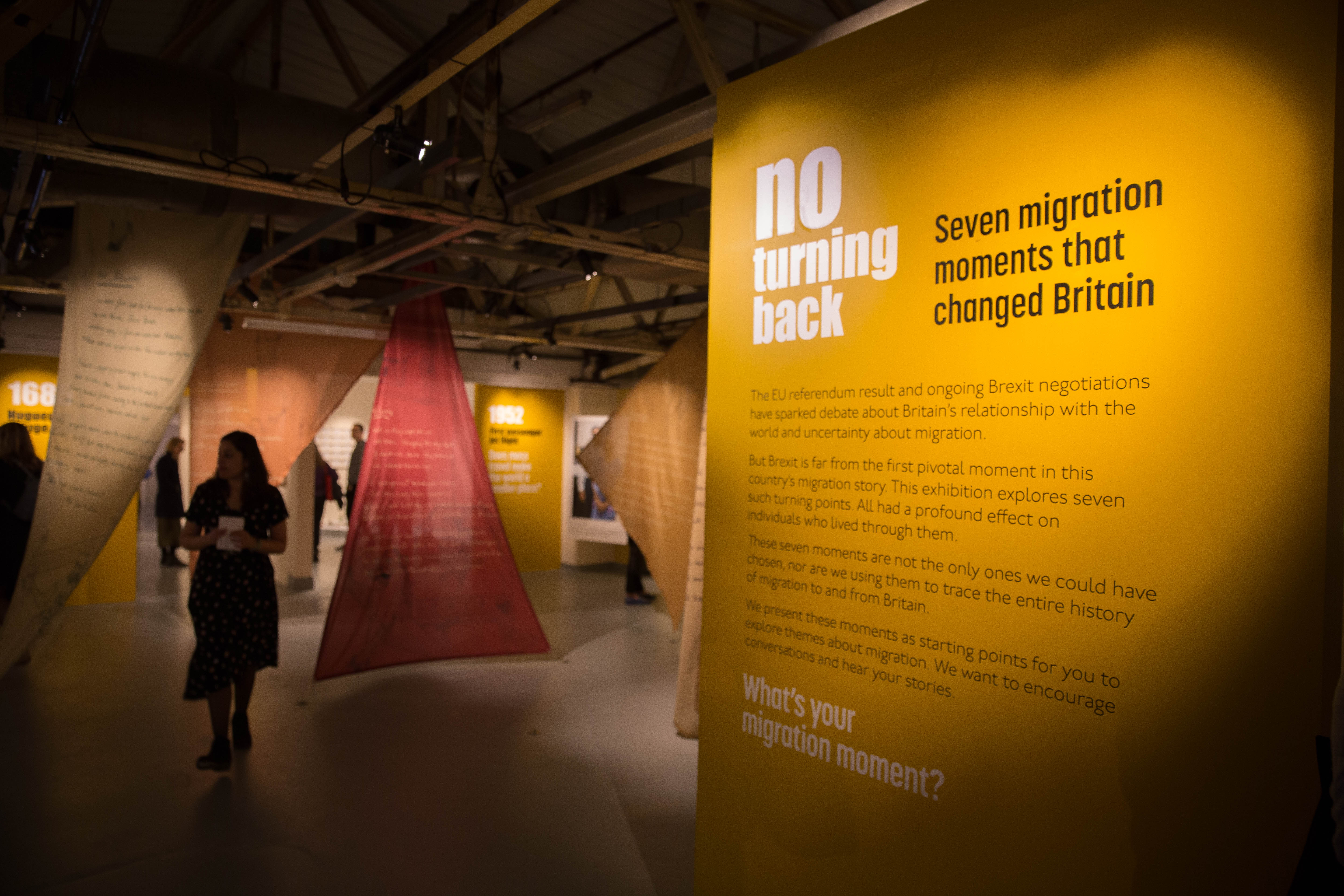
No Turning Back: Seven Migration Moments that Changed Britain at the Migration Museum at The Workshop, November 2018 © Migration Museum
Room to Breathe, an immersive exhibition inviting visitors to discover personal stories from generations of new arrivals to Britain by journeying through a series of interactive rooms in which the struggles, joys, creativity and resilience of living in a new land are brought to life through audio, films, photographs and personal objects.
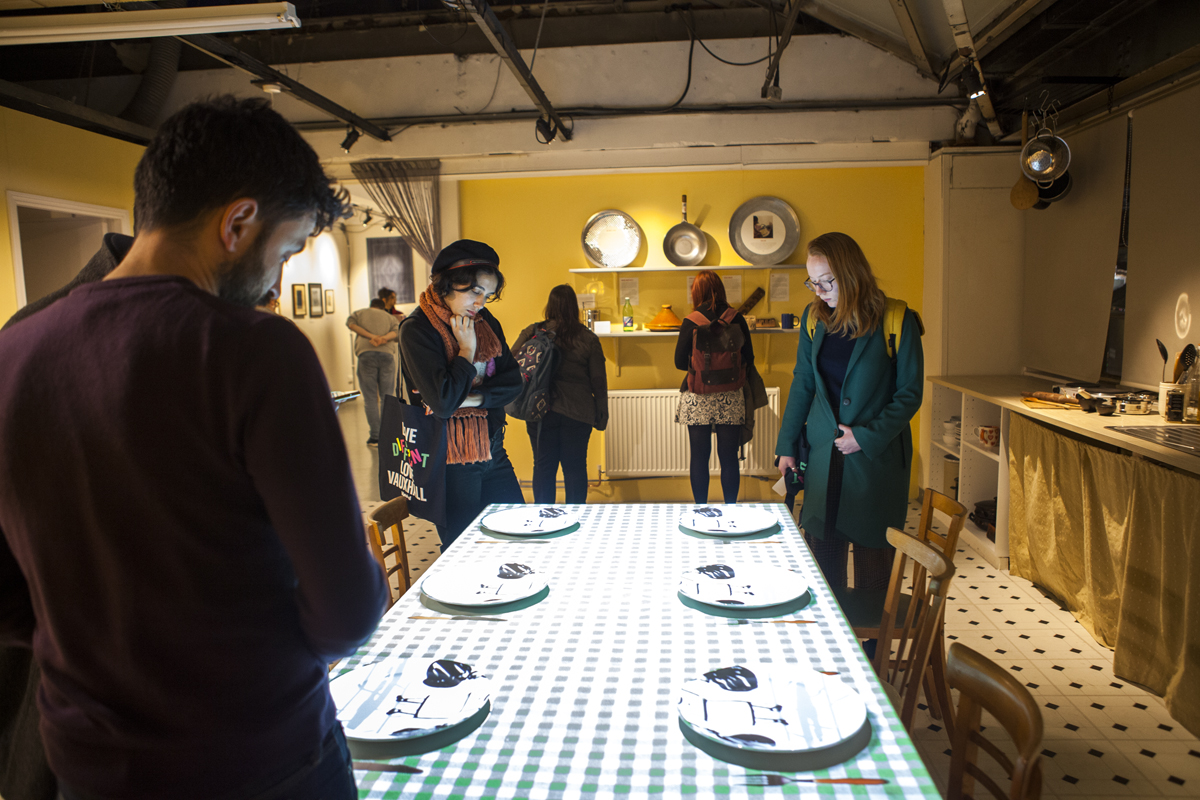
Room to Breathe at the Migration Museum at The Workshop © Elzbieta Piakacz/Migration Museum
The exhibition included an art studio, curated by visual artist and educator Dima Karout, which hosted a different migrant artist in residence each month who made the studio their own, creating art and sharing their work and process with visitors in real time. This programme culminated in Borderless, a group show curated by Dima Karout and featuring all of the artists who had taken up residency in the art studio during the exhibition run.
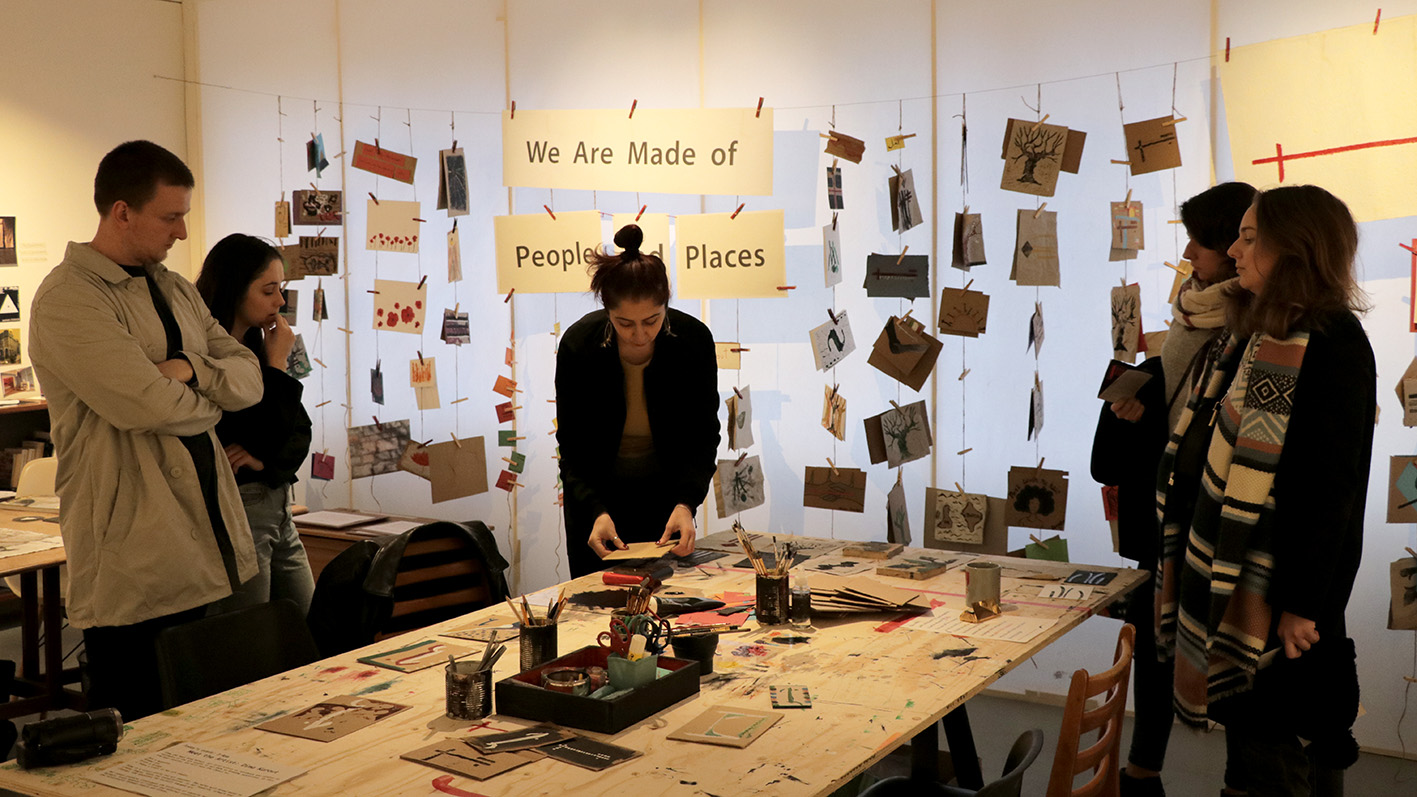
Visual artist and educator Dima Karout leads an art workshop in the art studio in Room to Breathe © Migration Museum
Hosted a regularly changing series of pop-up and temporary exhibitions, including:
The New Londoners, a series of family portraits by Magnum photographer Chris Steele-Perkins documenting London’s unique cultural richness
Caribbean Takeaway Takeover, an interactive pop-up art and sound installation showcasing the stories of Windrush generation elders by artist EVEWRIGHT
Nowhere People UK, a selection of works by UN documentary photographer Greg Constantine, commissioned and presented by UNHCR, exploring the impact of statelessness on individuals in the UK
A Mile in My Shoes – Migration, an immersive experience by the Empathy Museum housed in a giant shoebox inviting visitors to walk a mile in the shoes – literally – of refugees and migrants who have made London home while listening to their story.
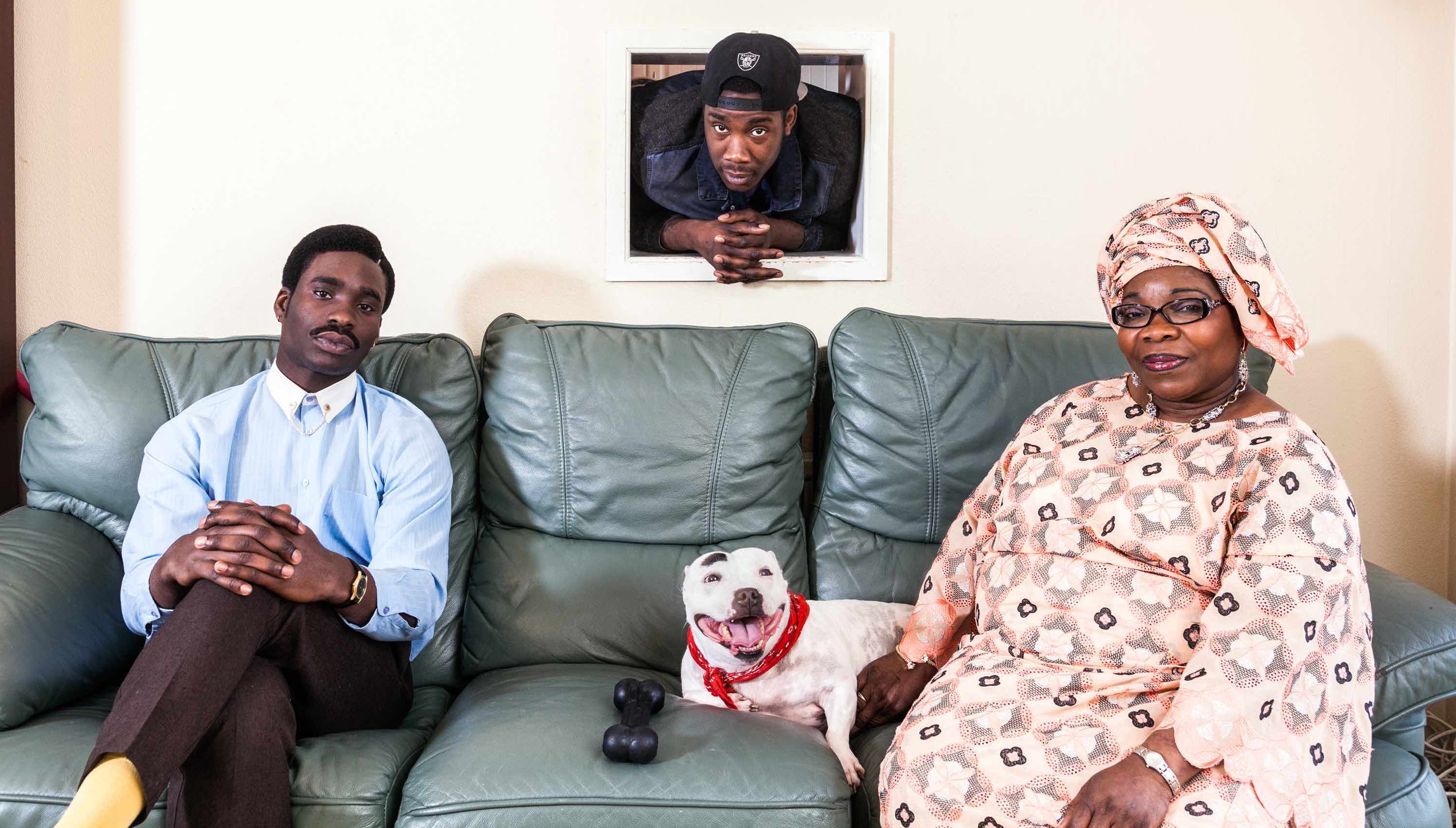
Nigeria – Joe Ogunmokun, his mother Adebimpe Ogunmokun and brother Michael Ogunmokun, from The New Londoners by Chris Steele-Perkins © Chris Steele-Perkins
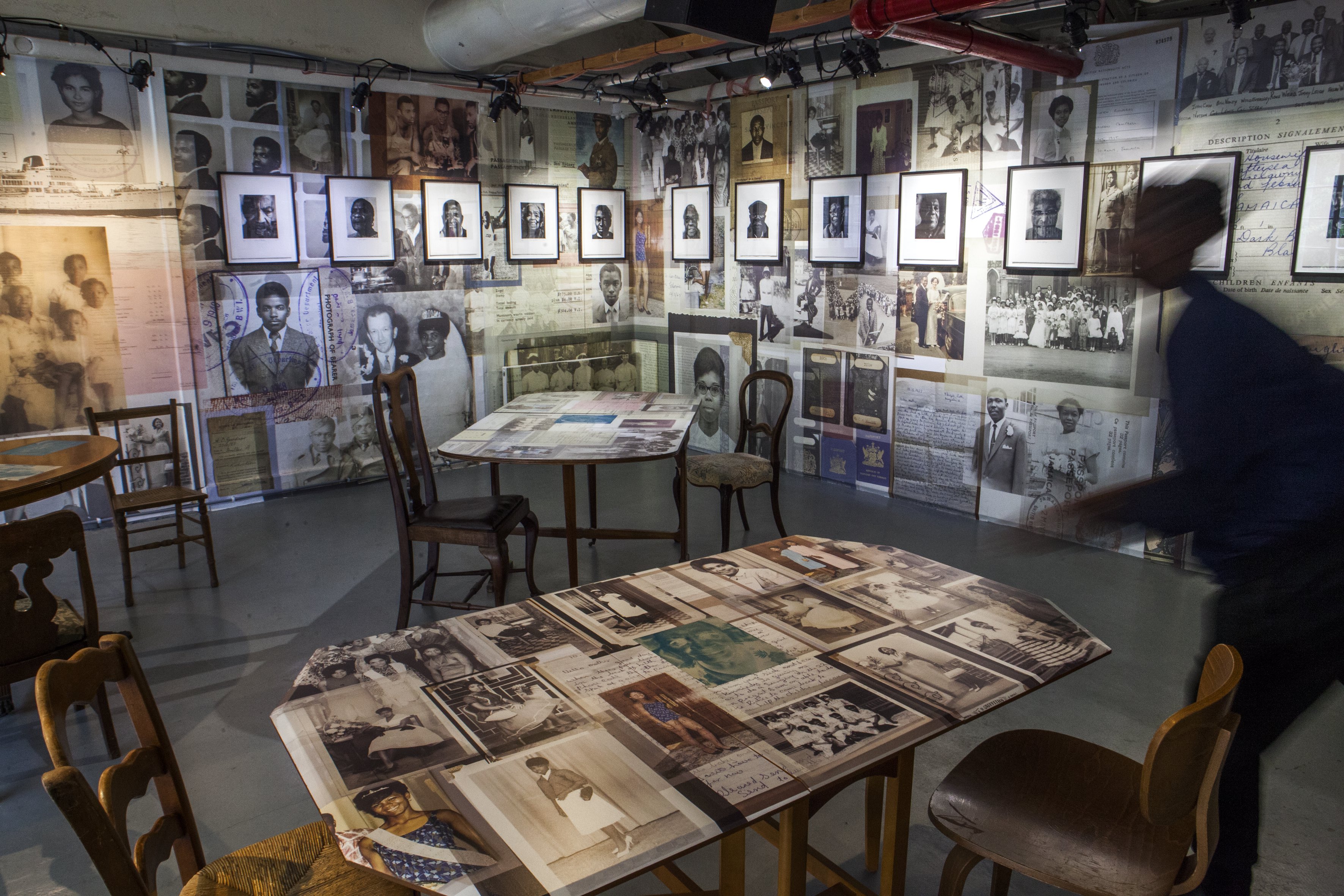
Caribbean Takeaway Takeover: Identities and Stories at the Migration Museum at The Workshop, May 2019 © Elzbieta Piakacz/EVEWRIGHT Studio
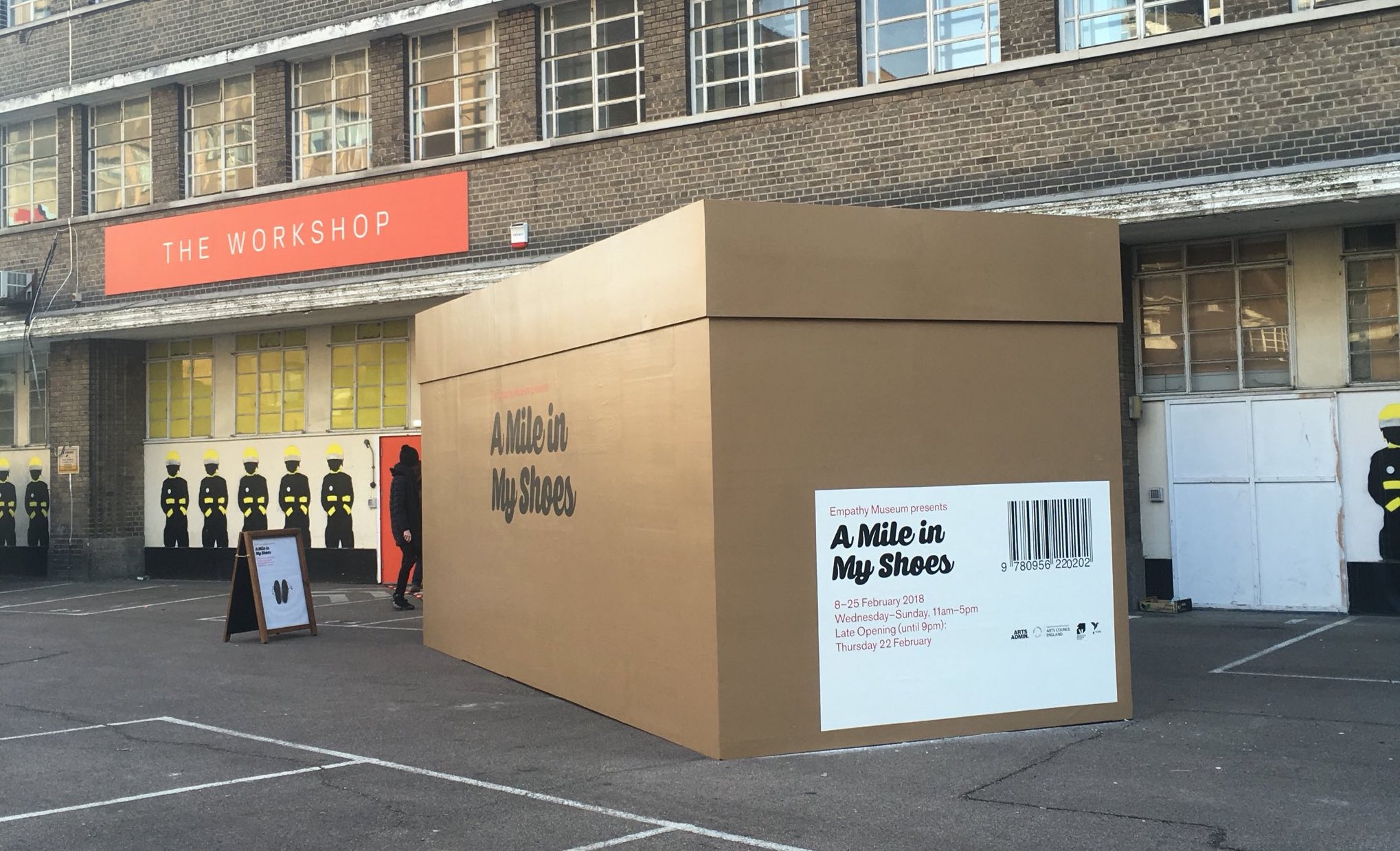
Empathy Museum presents: A Mile in My Shoes – Migration at the Migration Museum at The Workshop © Migration Museum
Held over 100 events, ranging from cookery classes to stand-up comedy nights, theatre performances to themed lates, sports tournament receptions and conversations with business leaders to our first ever Family History Day.
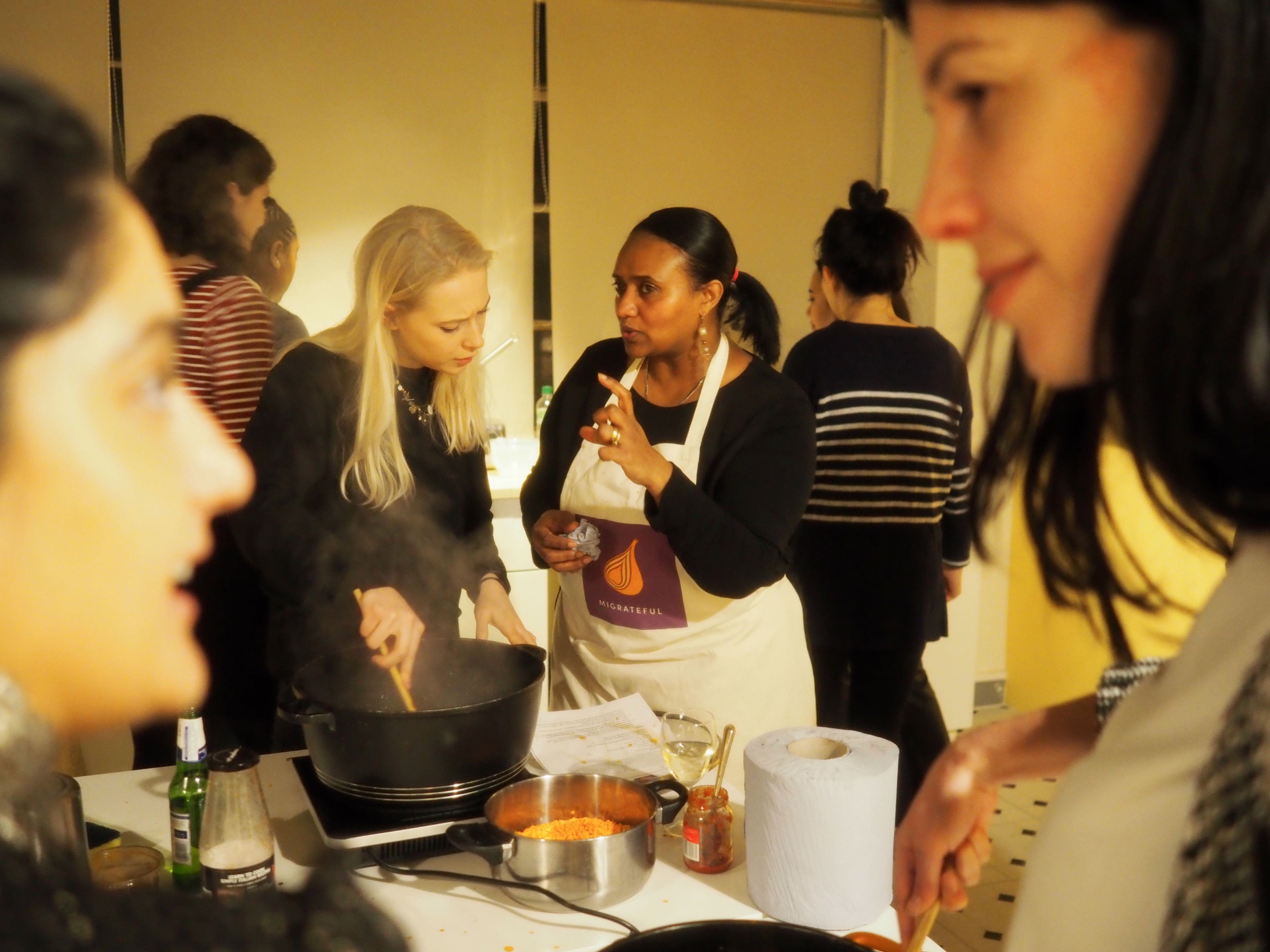
A Migrateful cookery class at the Migration Museum led by Woin, a migrant chef from Ethiopia © Tommy Walters/Migration Museum
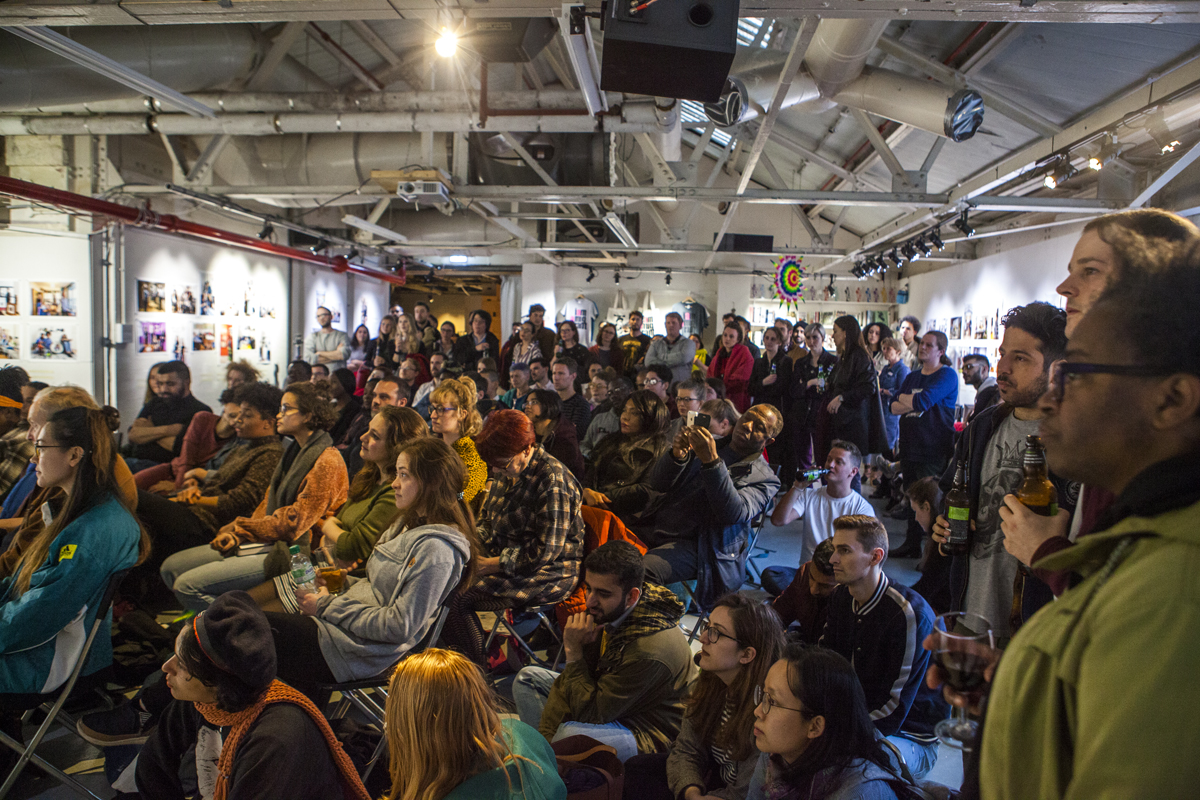
Audience members watch a performance at our Queer Migrations Late, April 2019 © Elzbieta Piakacz/Migration Museum
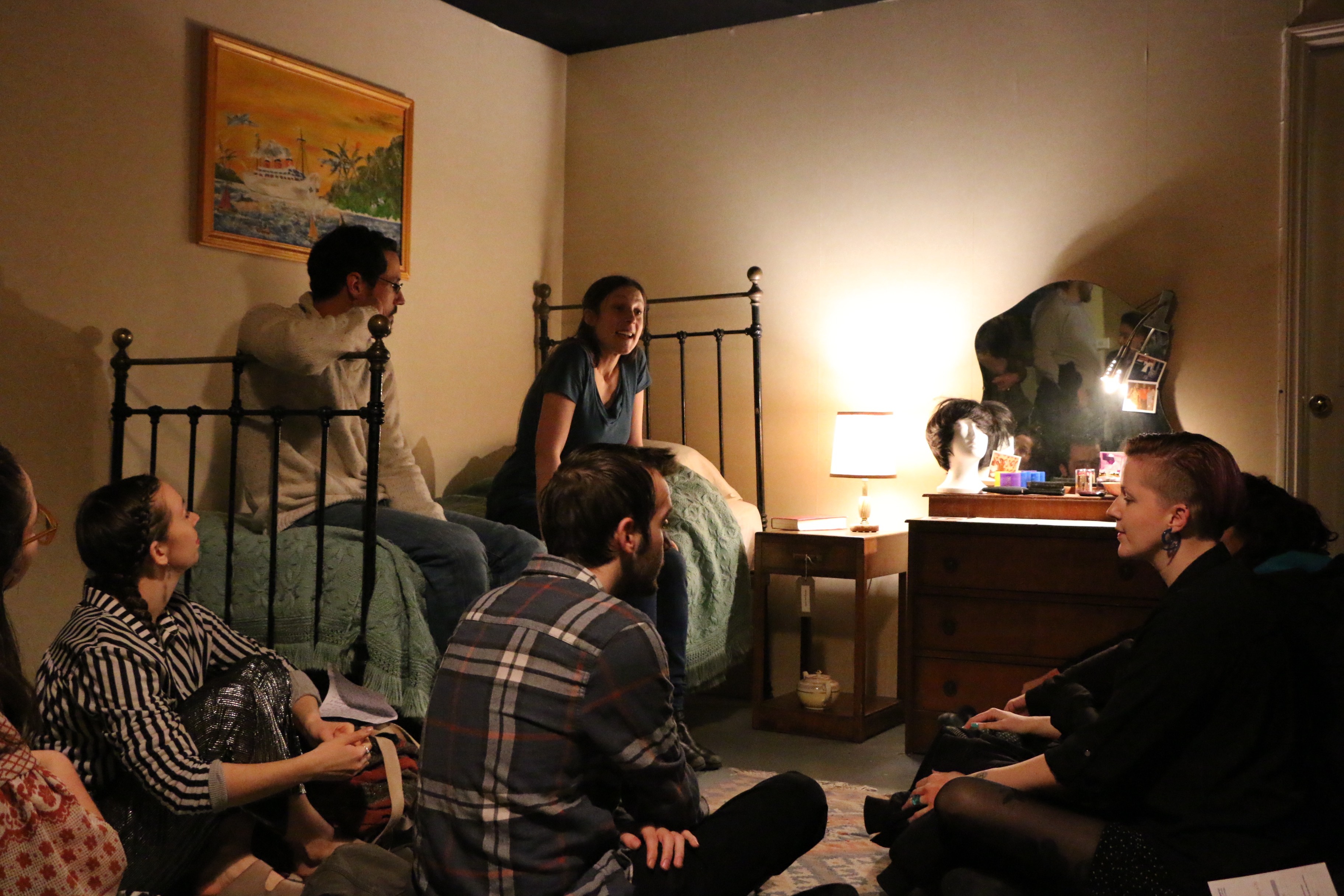
Touching Home, an immersive play by theatre company 27 Degrees, staged at the Migration Museum at The Workshop © 27 Degrees/Migration Museum
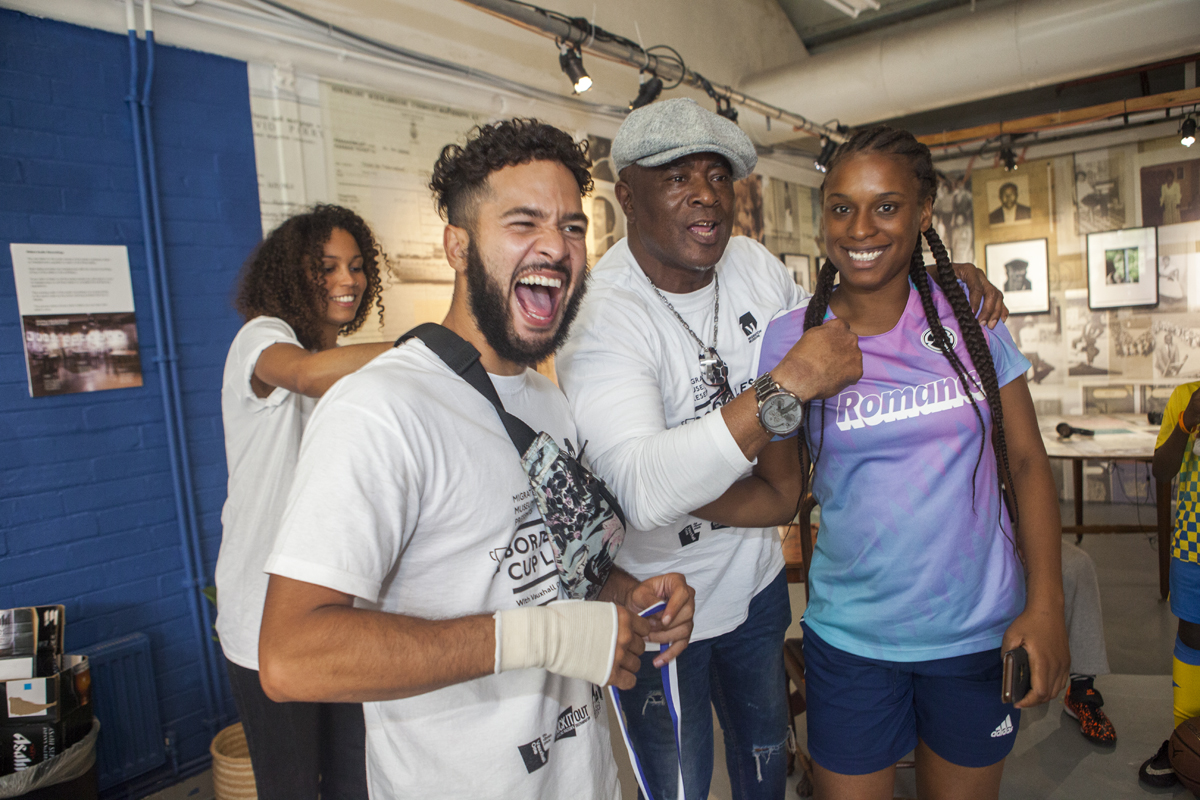
Paul Canoville, one of our distinguished friends, presents medals to participants in our Borderless Cup football and basketball tournament at the Migration Museum at The Workshop, August 2019 © Elzbieta Piakacz/Migration Museum
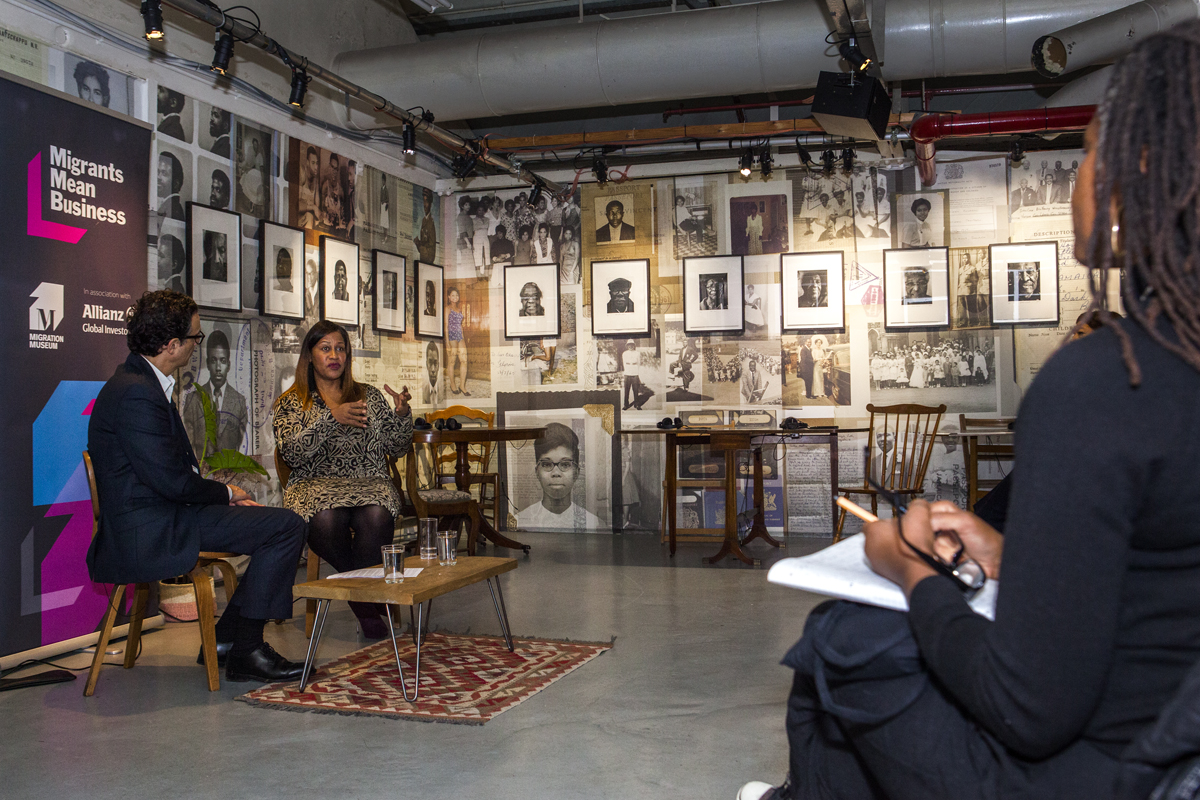
Karen Blackett in conversation with David Abraham as part of our Migrants Mean Business series of conversations with business leaders with migrant backgrounds, in association with Allianz Global Investors, November 2019 © Elzbieta Piakacz/Migration Museum
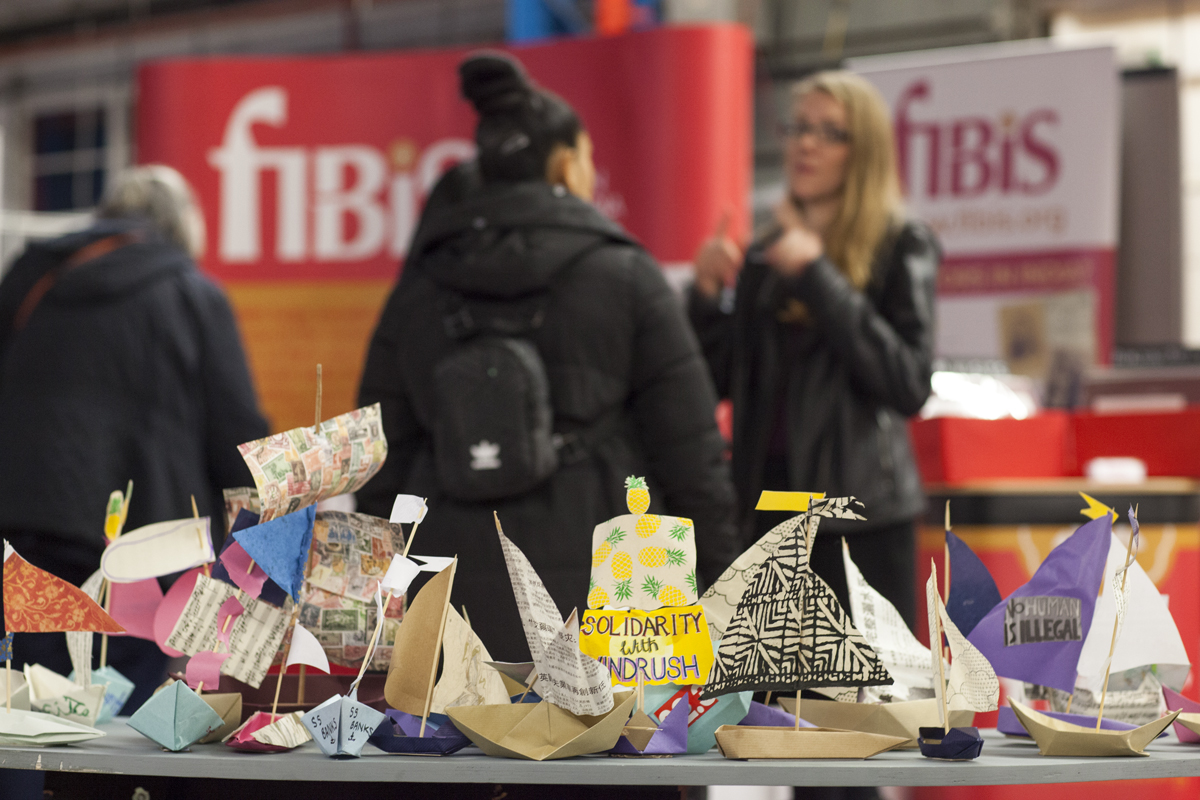
Family History Day at the Migration Museum at The Workshop, November 2019 © Elzbieta Piakacz/Migration Museum
Welcomed more than 5,000 primary and secondary school students, who took part in facilitated workshops and activities run by our learning team focused on the themes explored in our exhibitions and within relevant parts of the curriculum.
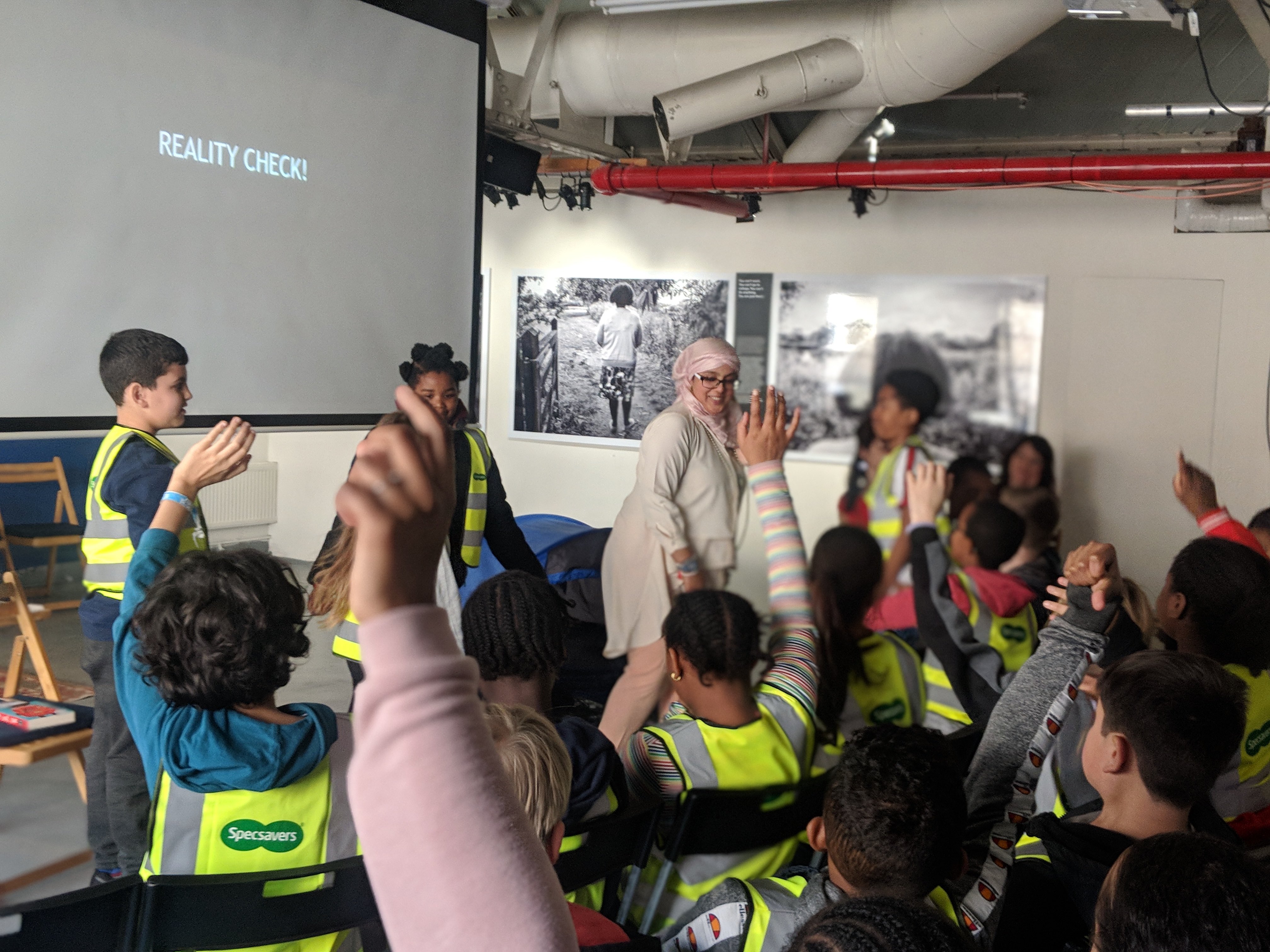
Students from Grafton Primary School participate in a workshop at the Migration Museum, March 2019 © Pop-up Projects
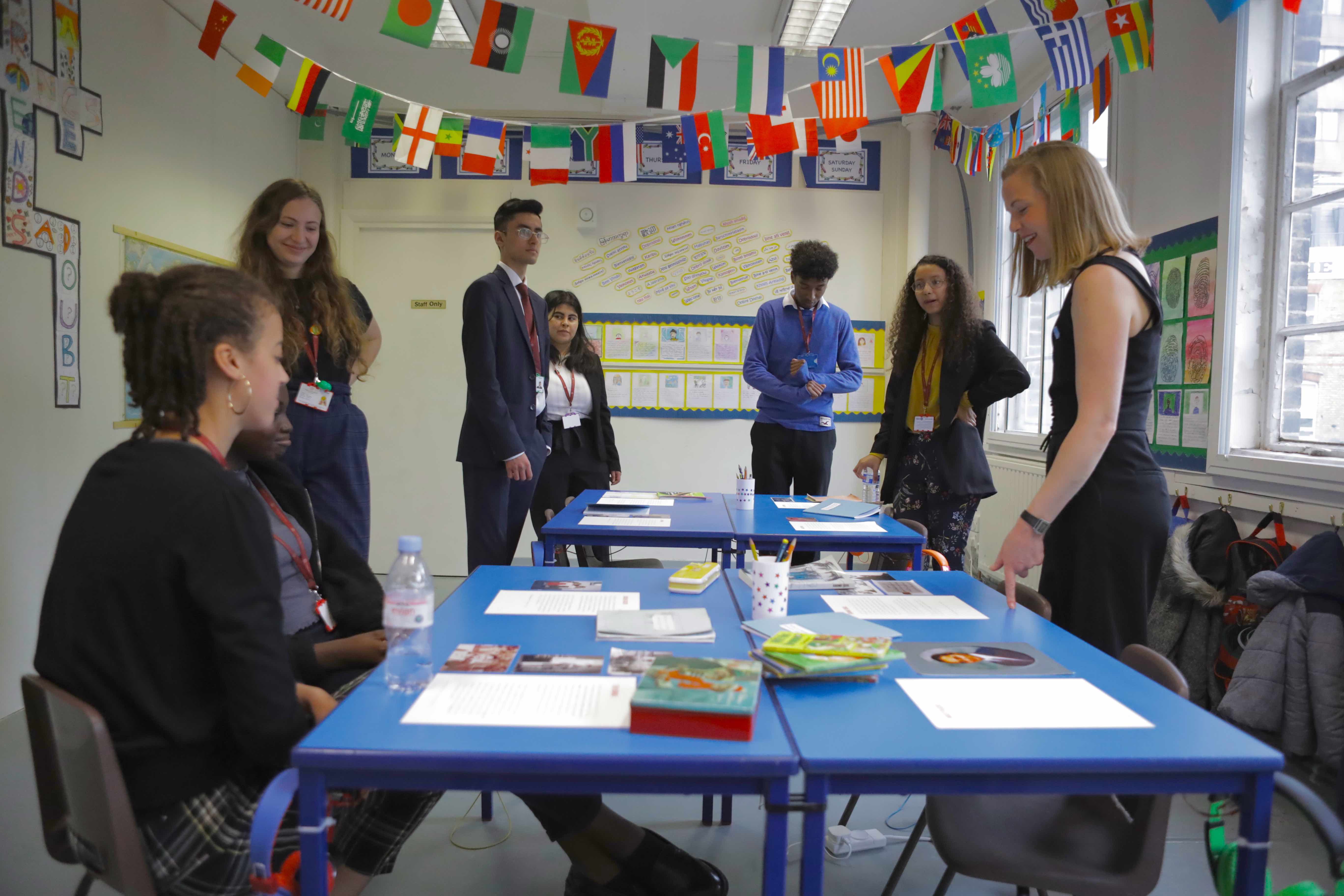
Students from Harris Westminster Sixth Form take part in a workshop in our Room to Breathe exhibition, June 2019 © Ufuk Gky/Migration Museum
Hosted more than 2,000 facilitated group visitors, ranging from community groups for older people to young refugees and asylum seekers, corporates and charities to government departments.
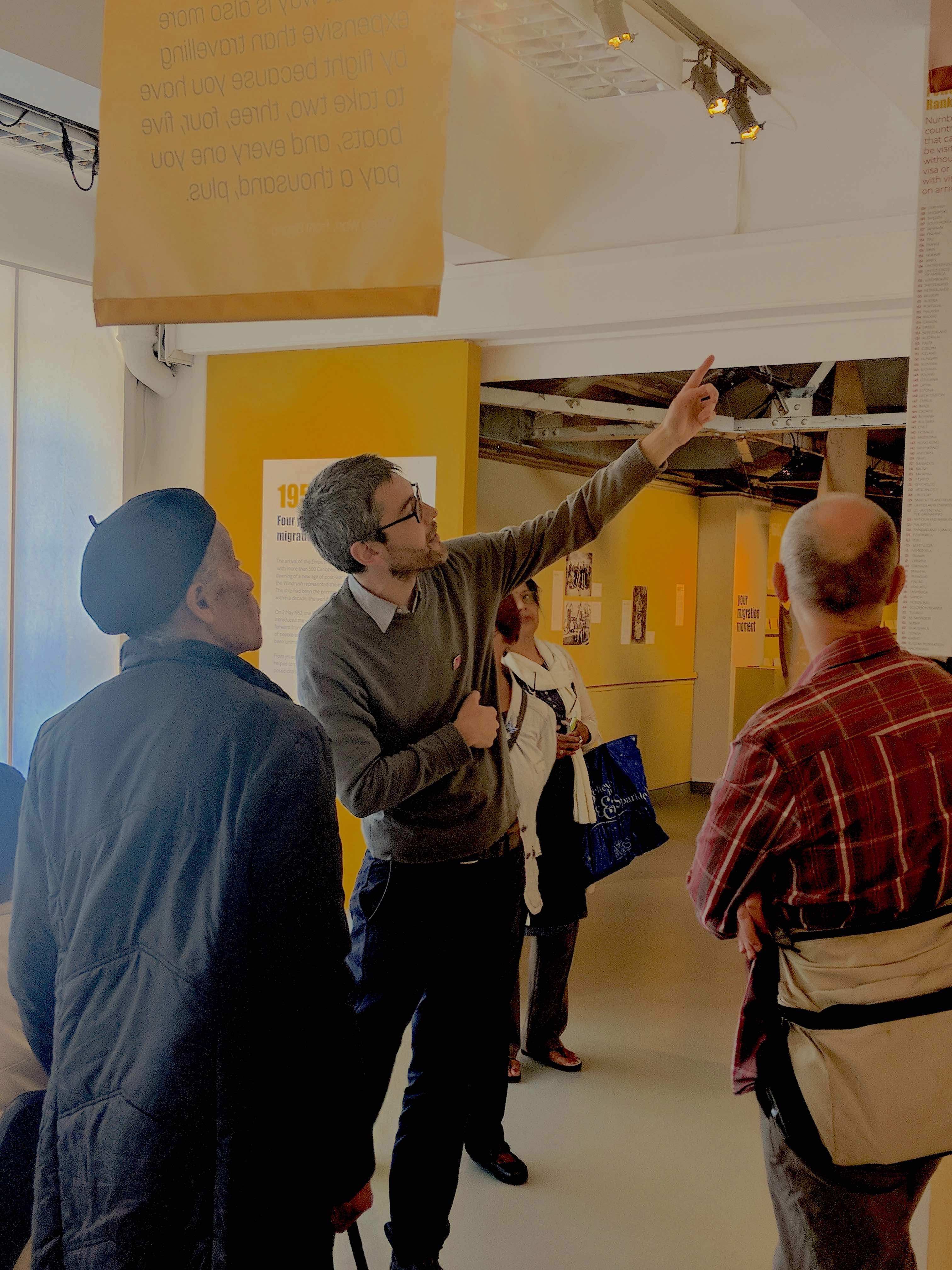
A guided tour of No Turning Back for a Tooting-based community group, 2018 © Migration Museum
Taken our activities out beyond the walls of the musuem into the local area through walking tours, sports tournaments, talks at schools, colleges and libraries and more.
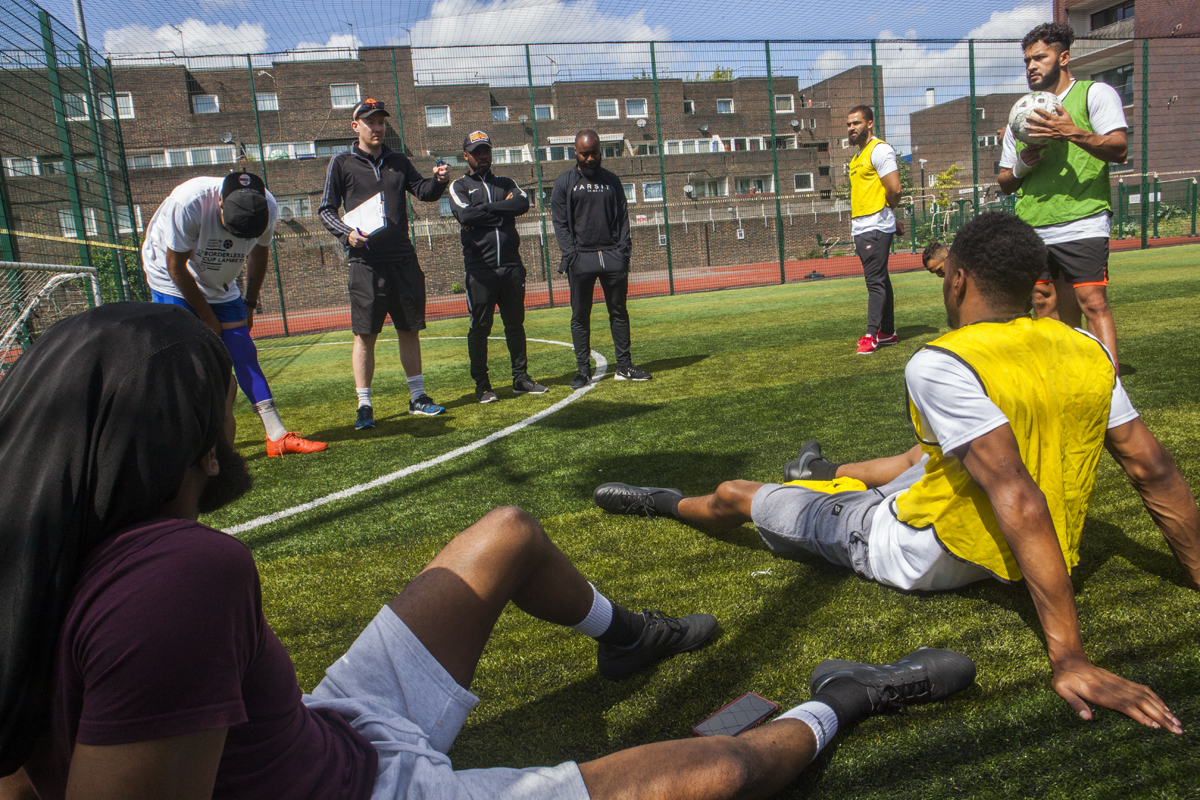
Participants in ourBorderless Cup Lambeth football and basketball tournament, August 2019 © Elzbieta Piakacz/Migration Museum
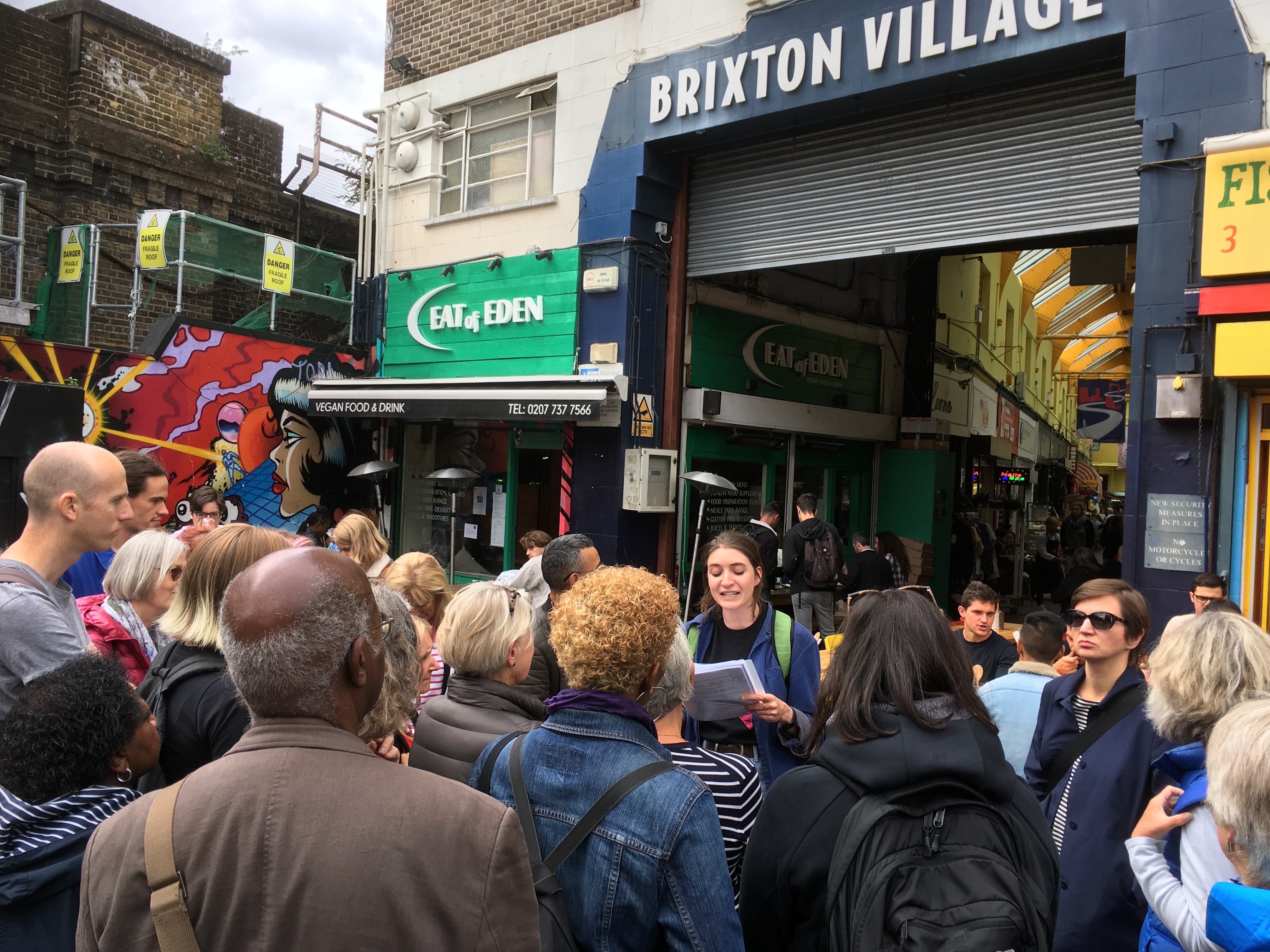
Our guided Lambeth Migration Walk, as part of the Lambeth Heritage Festival, September 2019 © Migration Museum
Thank you to everyone who visited us at The Workshop and to all of our contributors, funders and supporters.
We look forward to welcoming you to Lewisham in 2020!
21 November, 2019
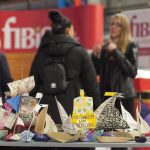
With the increasing popularity of online genealogy tools and DNA testing kits, and the long-running success of TV programmes such as Who Do You Think You Are?, there is a growing desire to find out where we come from and to uncover the stories of the ancestors that brought us here. But many of us don’t know where to start – or have become stuck in our research and don’t know where to turn next.
That’s why, on 2 November, we partnered with The National Archives, the London Metropolitan Archives and the National Trust to bring our visitors a Family History Day with a difference.

All images © Elzbieta Piekacz/Migration Museum
We were joined by genealogy specialists, history organisations and local history groups, who offered advice and guidance to visitors on the day. Among them, the Jewish Genealogical Society were on hand to offer expert advice on tracing Jewish ancestors, whilst the Commonwealth War Graves Commission gave information on tracing family who fought during the First and Second World Wars.
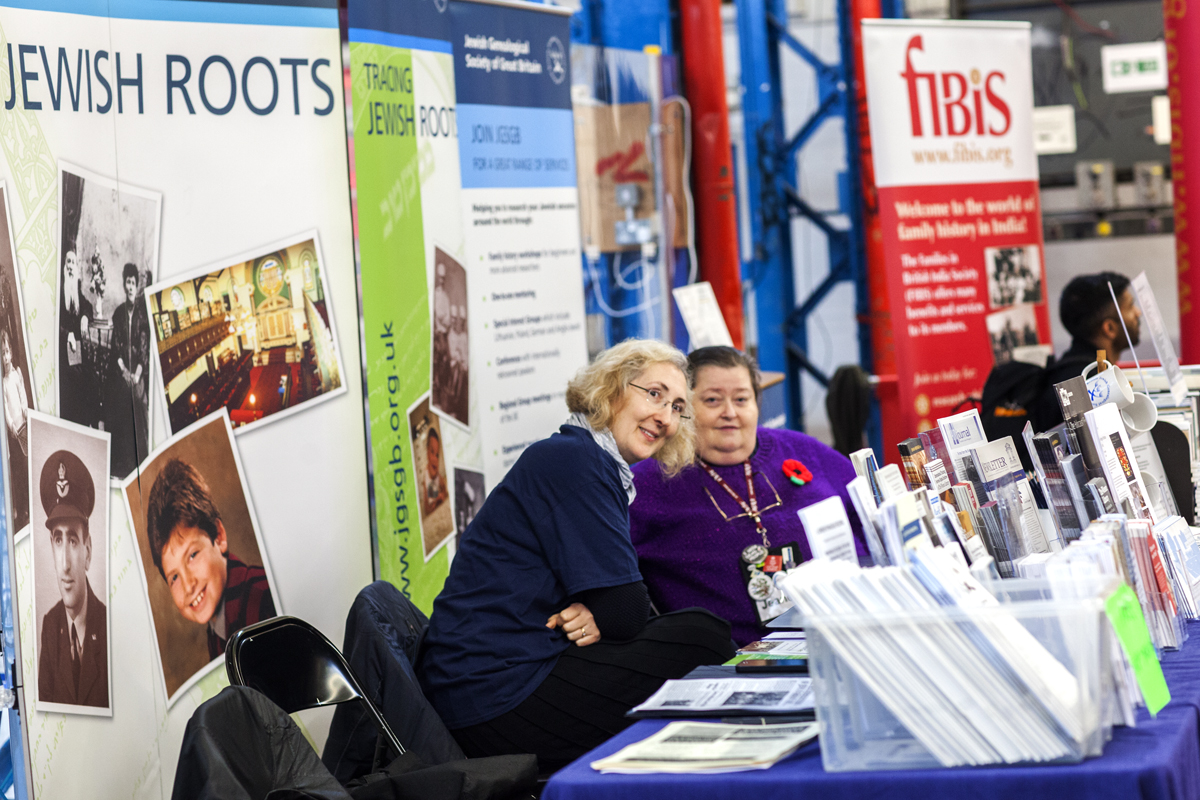
Surrey Heritage, Lambeth Archives and The Brixton Society provided advice on tracing local histories; the Black Cultural Archives presented a timeline of the history of Black Britain; and the Families in British India Society shared their expertise in tracing those who lived in India.
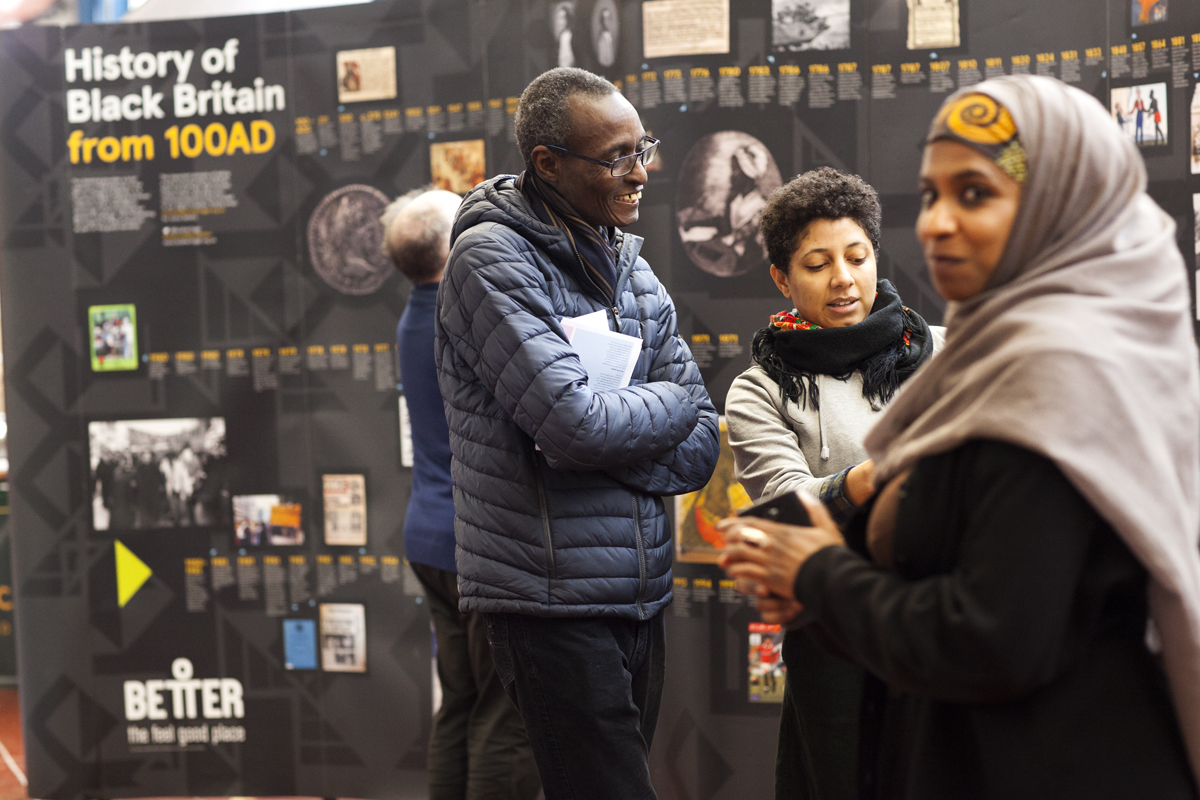
Upstairs in our Breathing Space Café, we hosted a series of talks and workshops by a range of speakers who complemented our exhibitors’ expertise with personal, practical and historical perspectives.
Our headline speaker, TV presenter Robert “Judge” Rinder, opened the day by speaking about his experience of being featured on the BAFTA-award-winning series of Who Do You Think You Are? He shared what he learnt about his grandfather in Poland, and how the experience shaped his personal connection and understanding of his forefathers. This, he shared with a rapt audience, has given him a renewed appreciation not only for what Holocaust survivors had been through, but also for what this country had given his family.
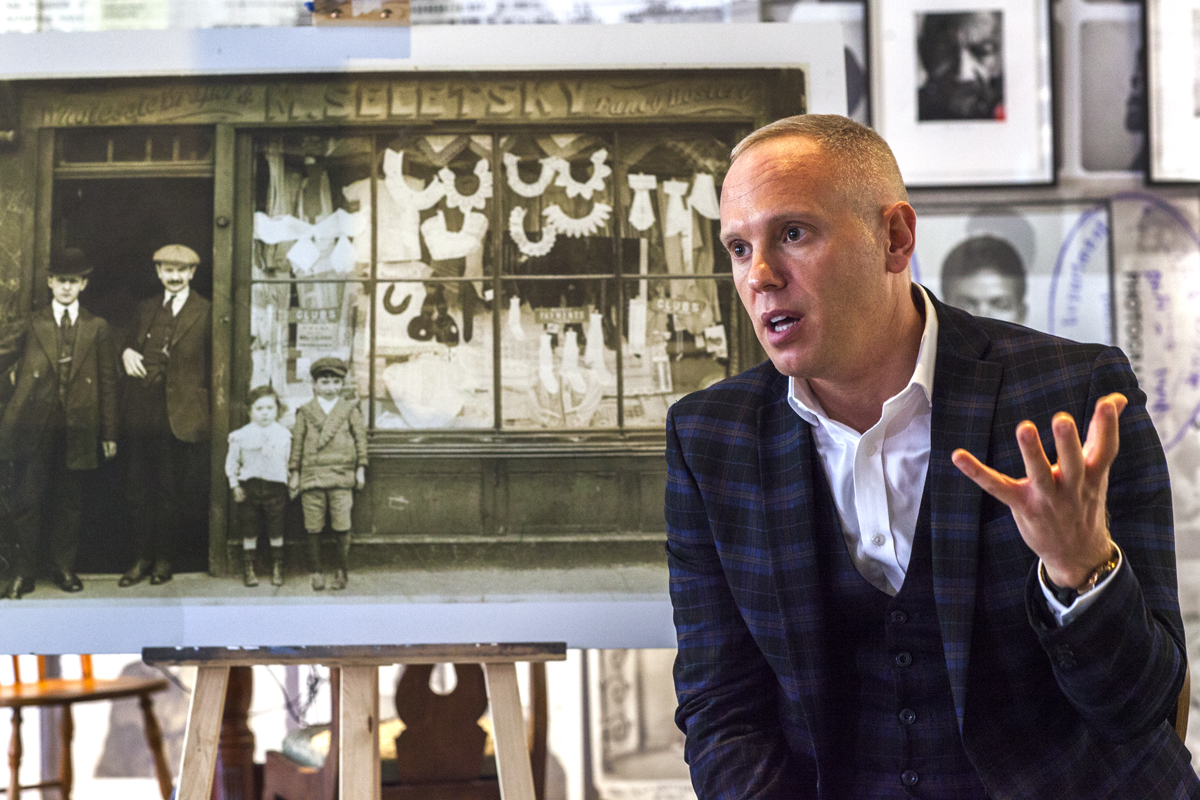
Roger Kershaw, Migration Records Specialist at The National Archives, followed in our Breathing Space Cafe. Drawing on over 30 years of experience in researching records, he shared how items in the key collections of The National Archives, such as passenger lists, passports and registration records, could be searched and interpreted.
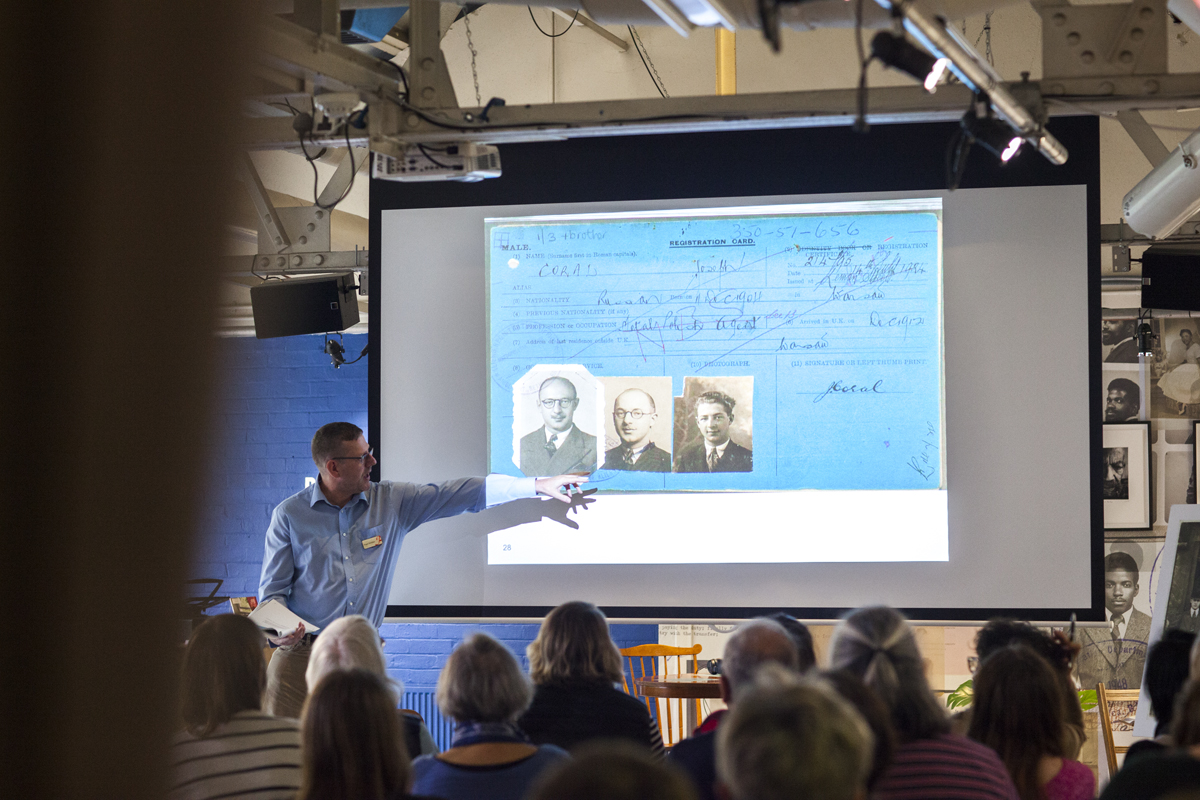
In the afternoon, author and Migration Museum trustee Robert Winder added a new dimension to the conversation, encouraging us to reflect on the wider historical context of our individual stories and to consider who has shaped our historical frames of reference. In doing so, the author of Bloody Foreigners suggested, we become acutely aware that, far from being dead and buried, the past is always with us, pressing into the present in persistent and unexpected ways.
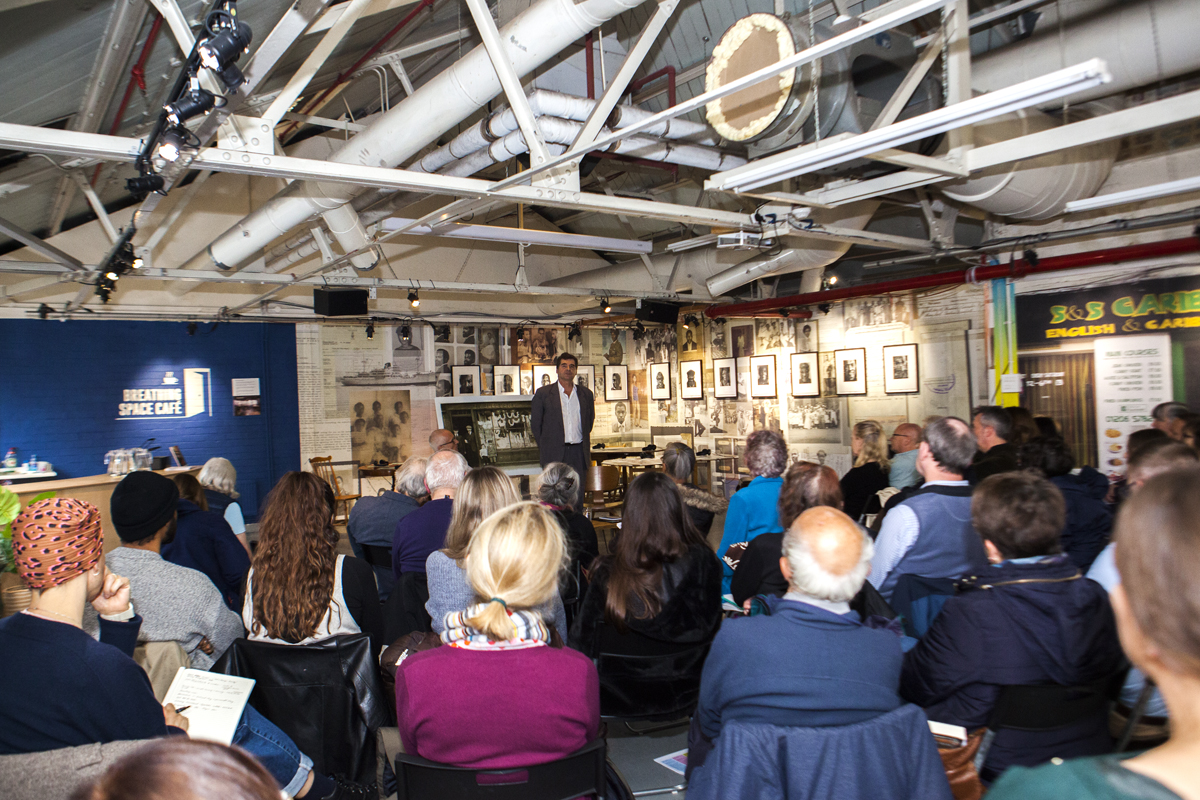
Else Churchill, Staff Genealogist at the Society of Genealogists, rounded off the talks programme with advice on researching your 20th-century ancestors, looking at distinct features of 20th-century life and the sources and techniques genealogists can use to supplement the gaps in knowledge – from divorce records to social media, drawing on her own research into her family.
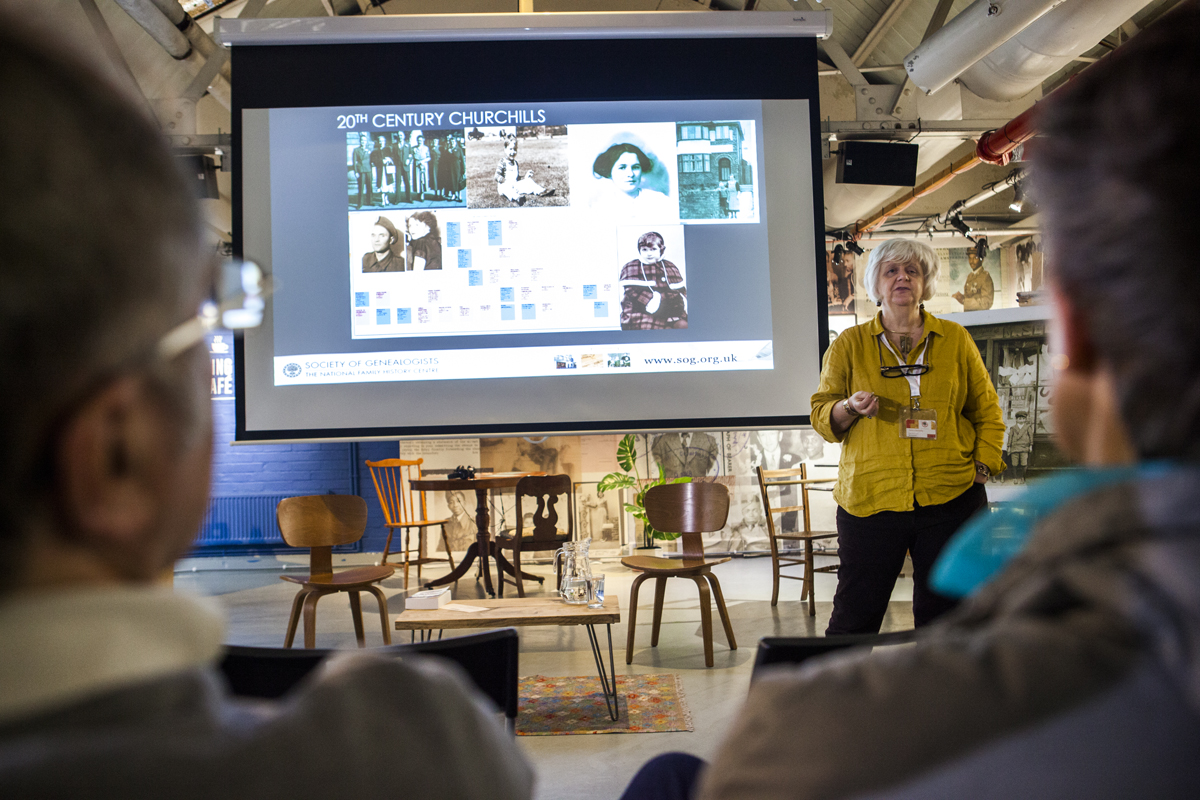
Over in our Artist Studio, we staged a series of workshops focused on practical advice and tips for family history researchers. Migration Museum trustee Sarah Caplin and her sister-in-law Judith Schott ran a hands-on session on compiling a family history. In their candid conversation, the two drew on their personal experience as they talked about everything from the impact of research on the individuals being researched, to the challenges of writing up the histories of those who are no longer with us.
They have also compiled a handy resource, available to download here and at the bottom of this post.
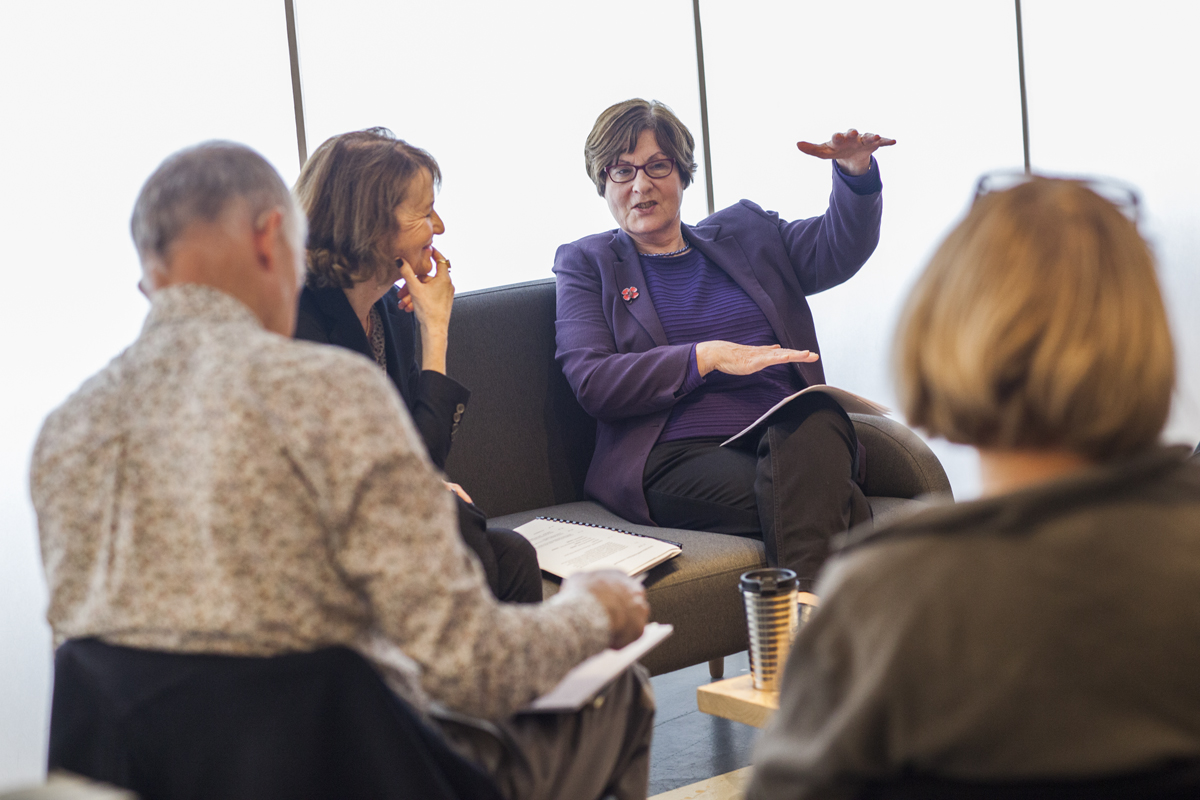
After lunch, Maureen Roberts and Claire Titley of the London Metropolitan Archives gave us a helpful guide to the documents, events and training courses on offer at the London Metropolitan Archives and how to make use of this invaluable resource.
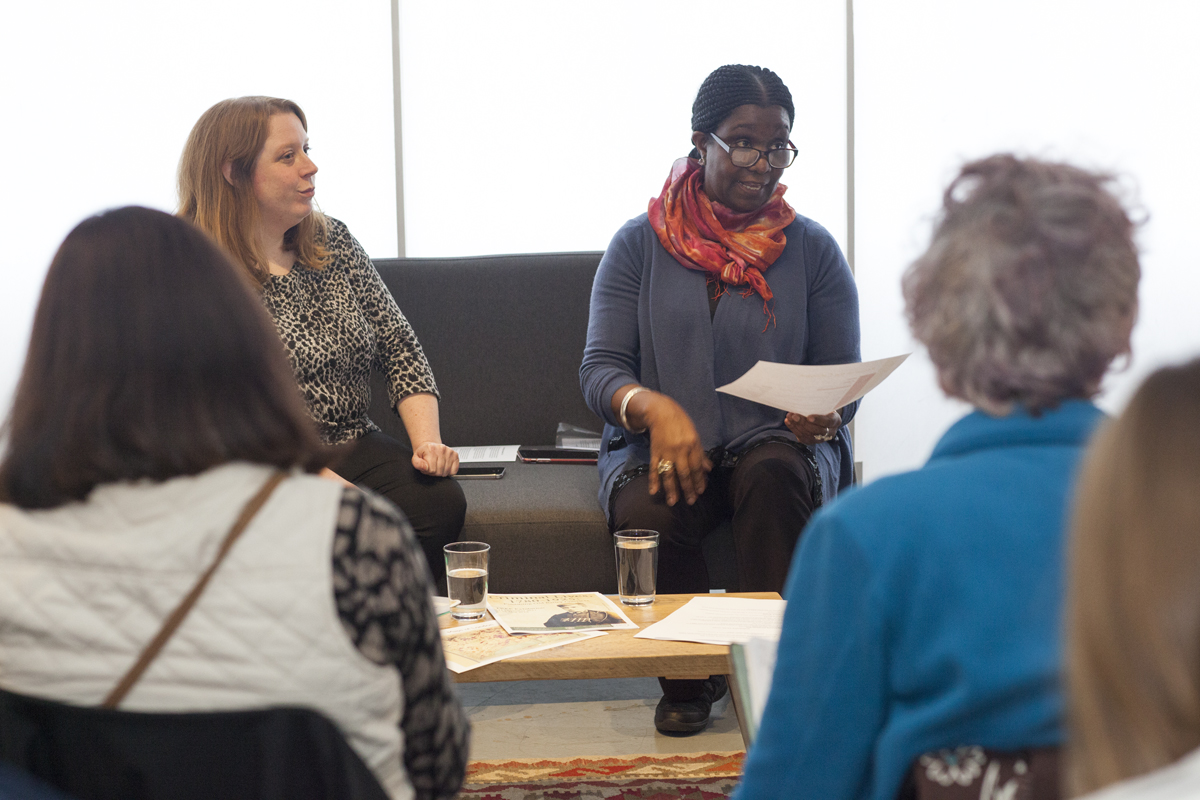
Meanwhile, downstairs in the main hall, guests flocked to “Ask-The-Expert” drop-in workshops with Catherine Troiano, Curator of National Photography Collections at the National Trust, bringing with them family photographs, some as dating back to the late 19th century. Throughout the day, Catherine ‘unpacked’ visitors’ family photos, learning about styles, materials and dates, and finding out how these fitted in with photography’s wider history.
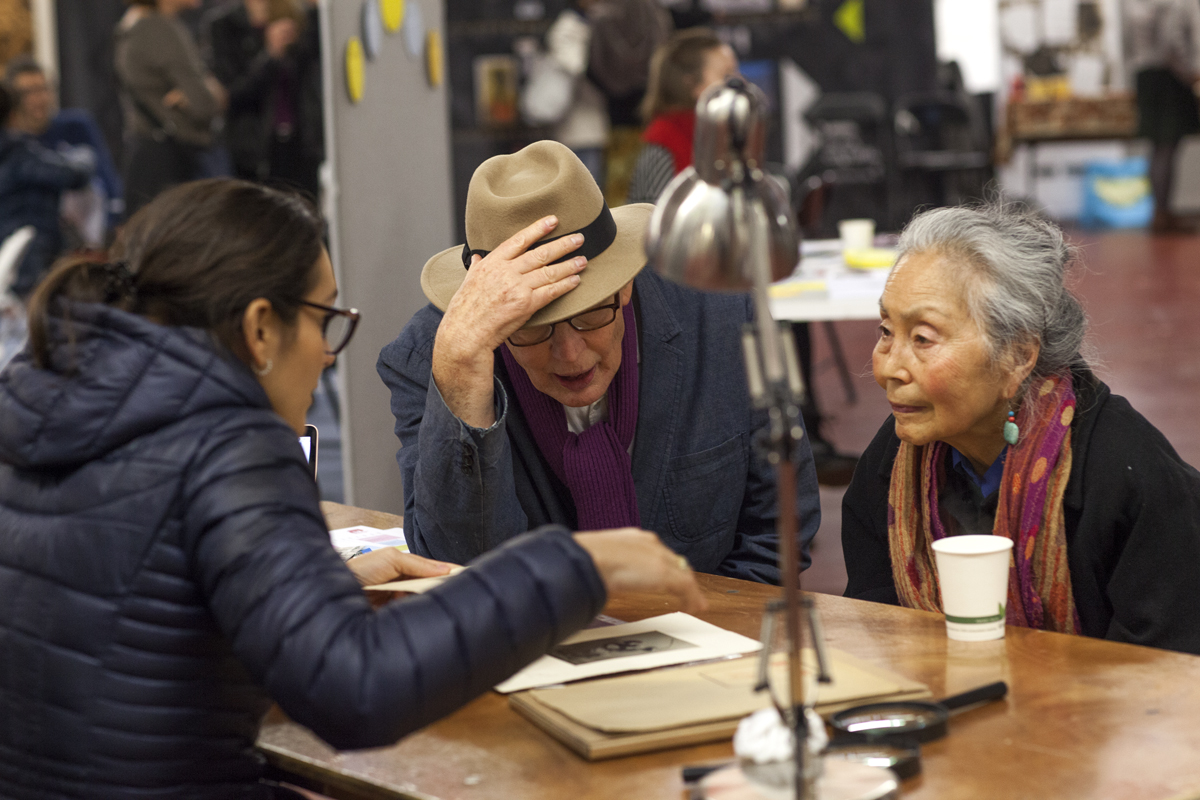
We were also joined by Kitty and Alan, two World War Two eyewitnesses with the Imperial War Museum’s “We Were There” programme. They shared their stories of living through the war in London. Kitty revealed why many railings in Kennington are curved, and what the area local to the Migration Museum at The Workshop looked like before the blitz.
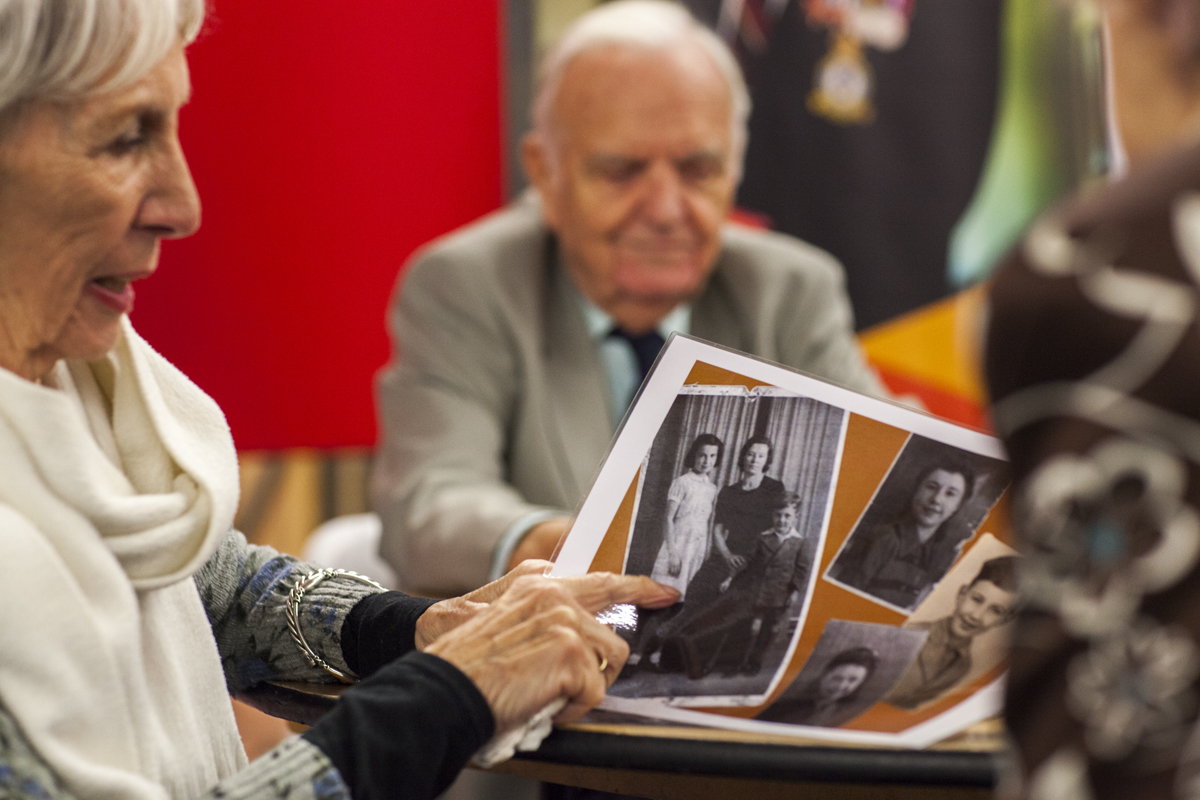
Over at the Migration Museum stand, our Head of Creative Content, Aditi Anand, was collecting personal stories for the Migration Museum’s upcoming exhibition Departures – which looks at 400 years of emigration stories from the departure of the Mayflower to present day. If you missed the opportunity to share your story on the day, please see below.
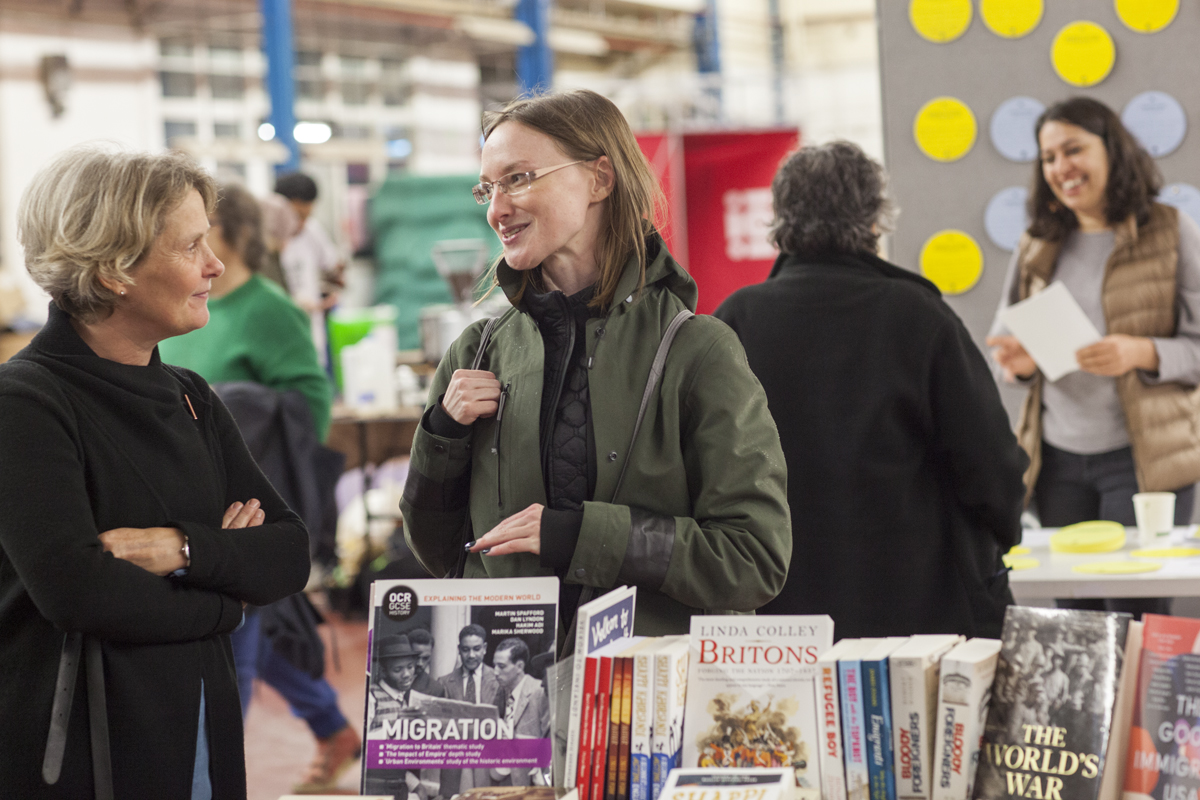
Those in need of a break re-fuelled at a series of stalls run by local organisations and social enterprises. Usman, of Haven Coffee, served up freshly ground coffee to keep our guests on top form, Local social enterprise Brixton People’s Kitchen offered warming soups, with the south London chefs at Panache Food offering hearty lunches.
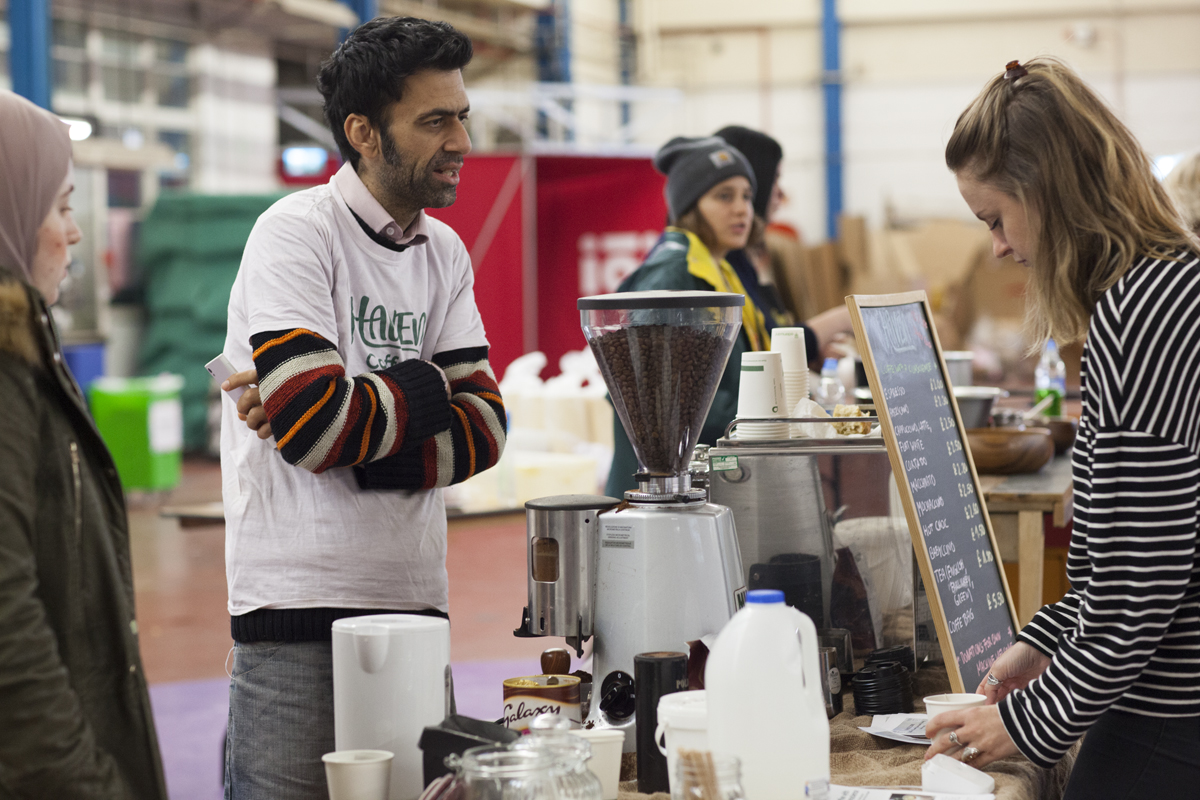
A big thank you to everyone who joined us on the day. We hope that you enjoyed the day and left inspired and equipped to continue your family research independently. We hope that our inaugural Family History Day will be the first of many such events that can inspire all of us to unlock and explore our pasts – watch this space.
Through finding out more about our family stories and exploring the journeys our ancestors have made, our Family History Day illuminated the central role of migration – whether within the UK or beyond its borders, or both – in making us who we are today. But even more than this, understanding where our families came from can open our eyes up to different aspects of human experience in unexpected ways. A connection with the past bleeds into our present and future, providing us with greater context, understanding and appreciation for what our ancestors went through – and perhaps, what is happening now.
Resources and links
Sarah Caplin and Judith Schott – advice on writing personal histories
Family History Day – programme of talks and workshops

























